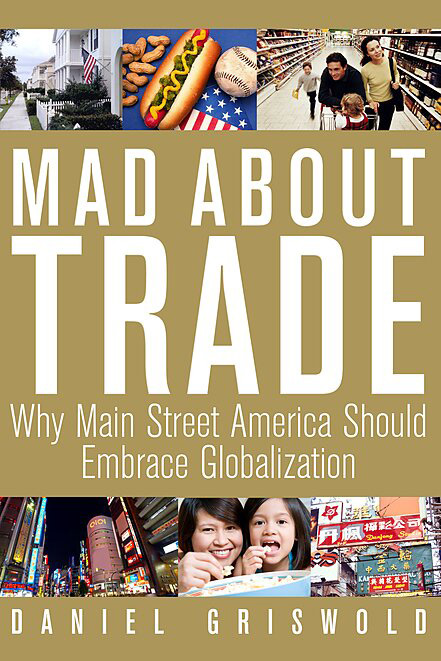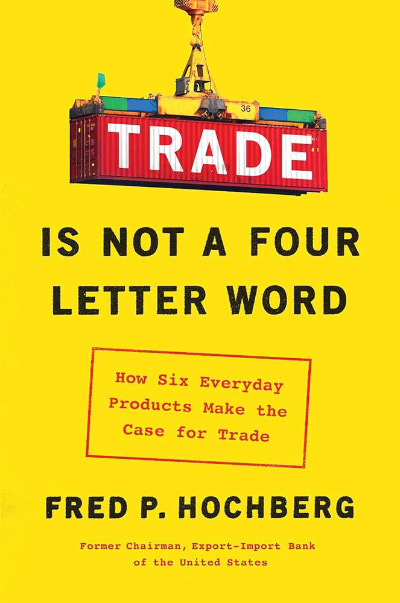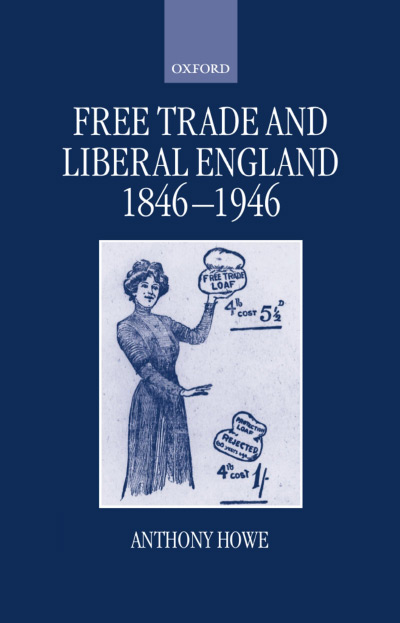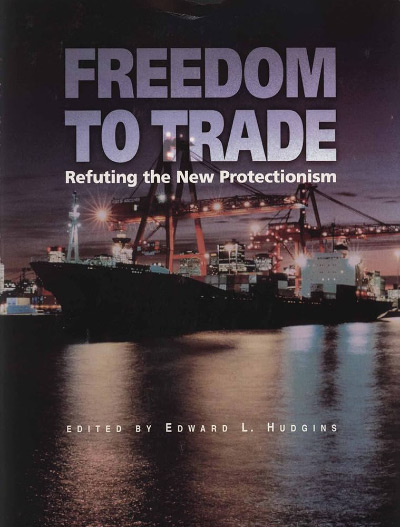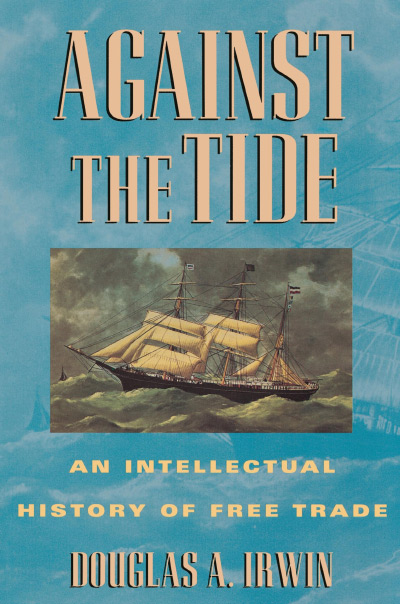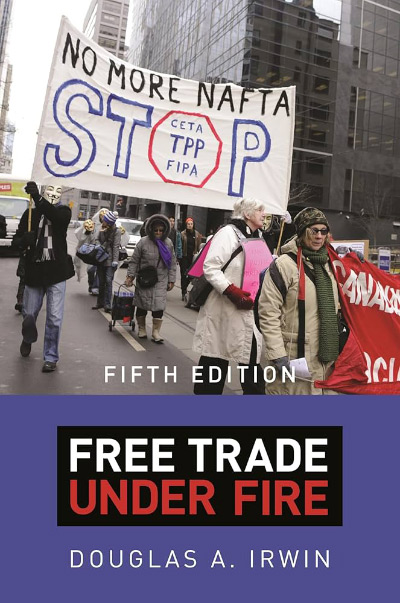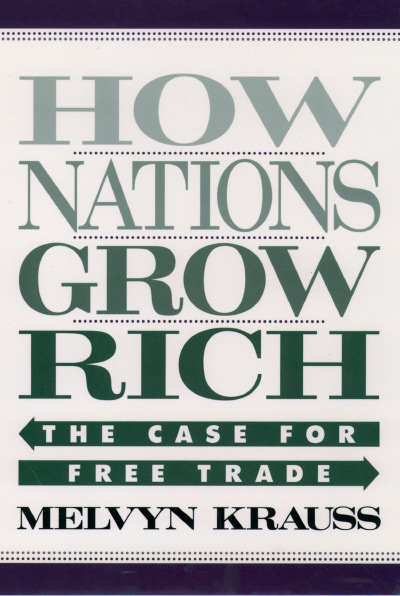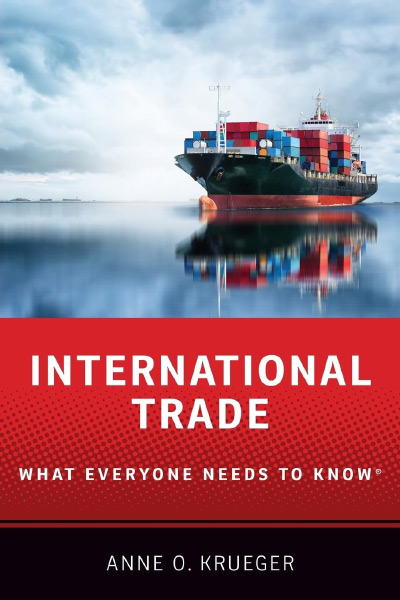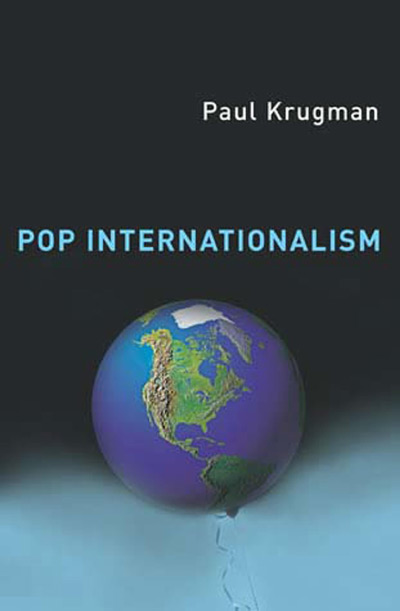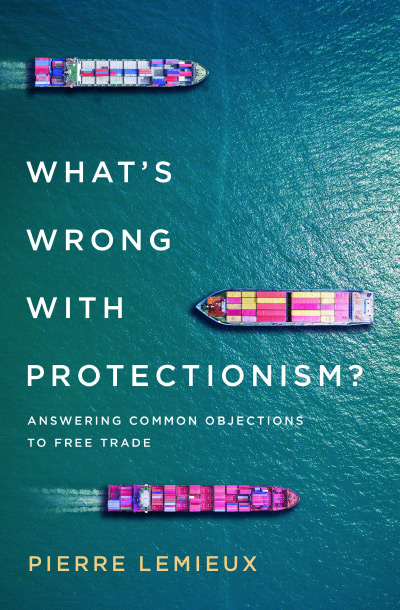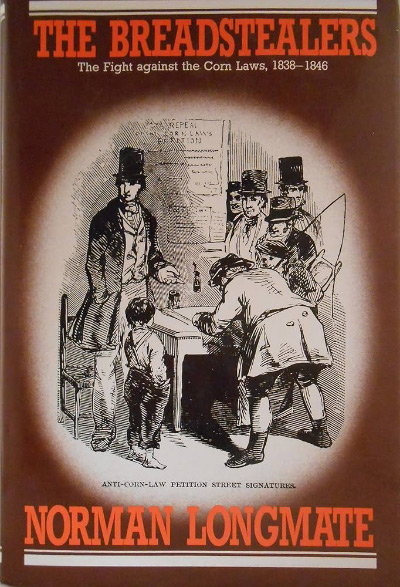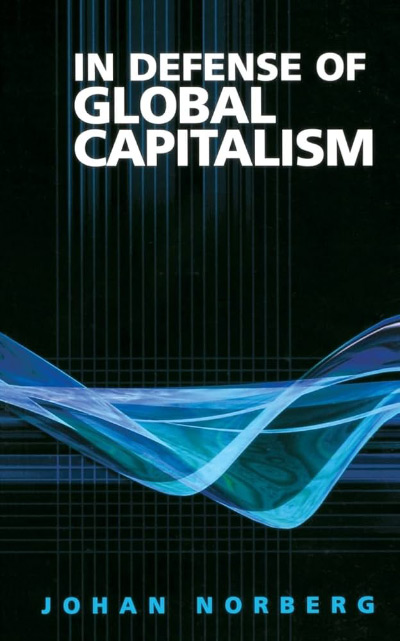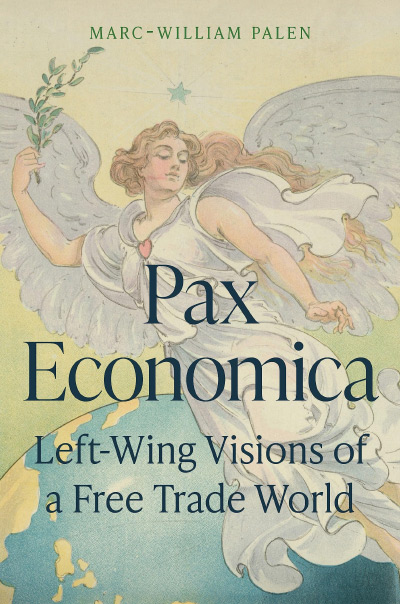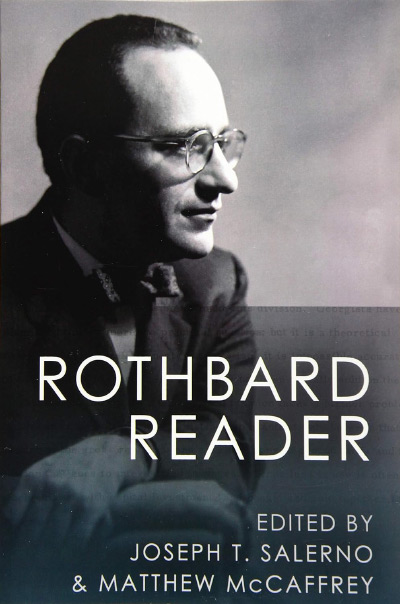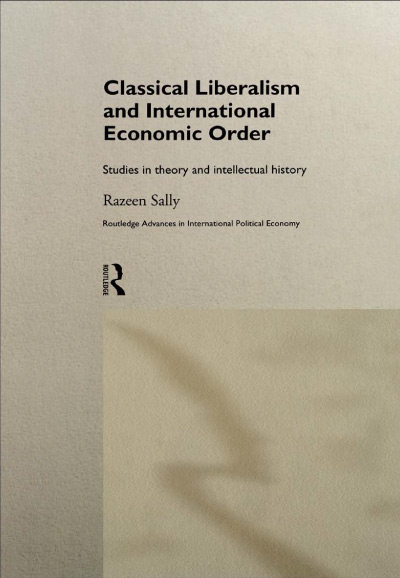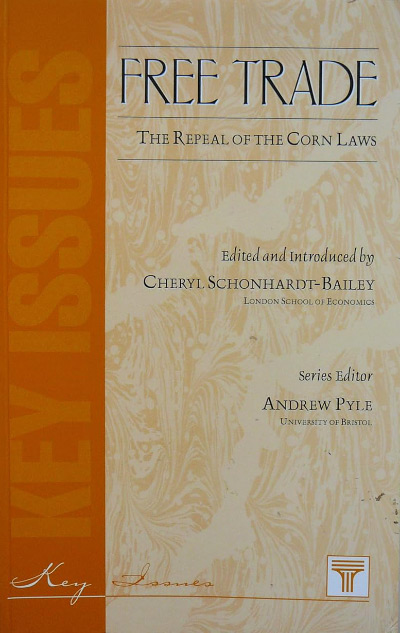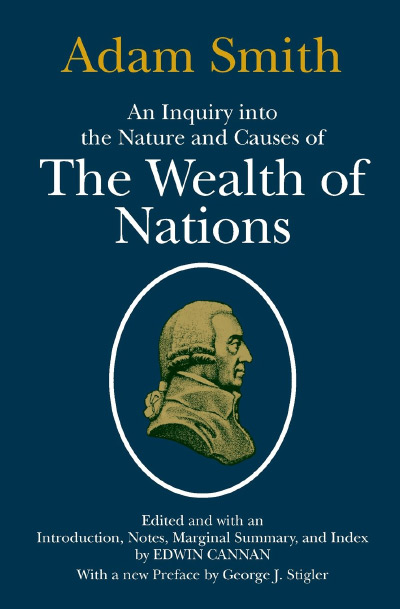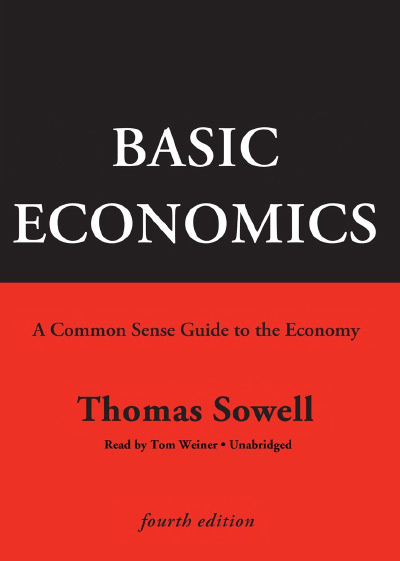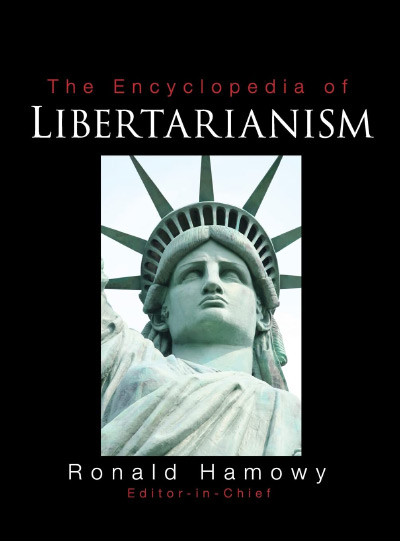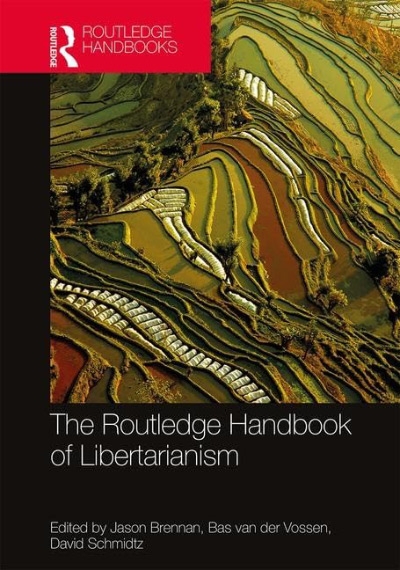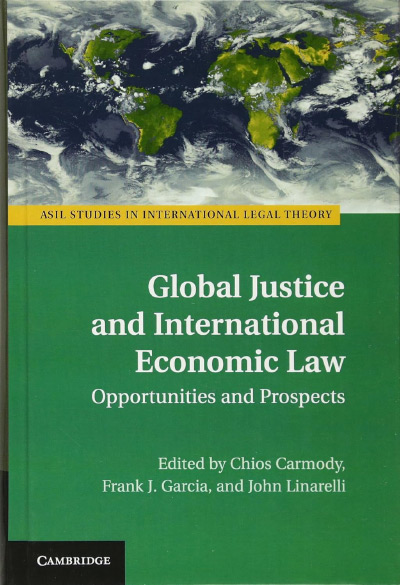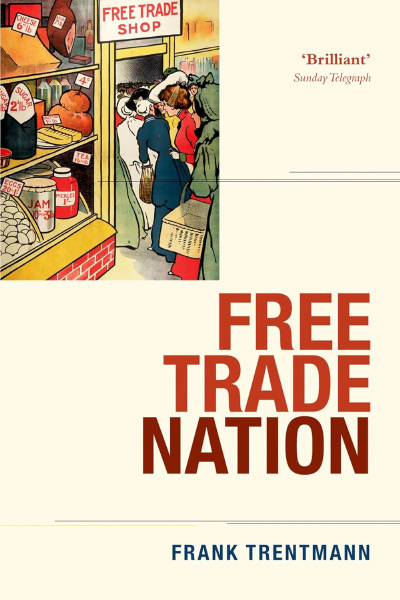Contents
Introduction
Economists, going back to Adam Smith and David Ricardo, are virtually unanimous that free trade benefits consumers and the overall economy. But there exist special interests who would gain in the short run from protectionist barriers. And there is a large segment of the public that doesn’t understand the arguments for free trade. Not surprisingly, there are politicians who are all too willing to gain votes by catering to protectionist interests.
People, farms, firms, and factories in America should be able to trade freely with people, farms, firms, and factories across international boundaries. You should, for example, be able to buy shoes made in Ethiopia. Economist William Niskanen stresses the moral case for free trade: Individuals have the right “to make consensual arrangements across national borders.” Without governmental interference, such voluntary interaction is harmonious and mutually beneficial. People don’t trade unless they believe they will be better off afterwards.
Much international trade can be explained by comparative advantage. Economist Donald J. Boudreaux explains that “the chief nontrivial insight” found in the idea of comparative advantage is that an economic concern’s “technical ability to produce a product” is, by itself, “irrelevant” for resolving whether “that entity should produce that product itself” or “acquire that product by first producing something else and then trading that something else” for the desired product.
Trade barriers are put in place by politicians and bureaucrats who use the machinery of government to disrupt voluntary trade and grant privileges to special interests at the expense of consumers and the general public. Jobs that are protected from the gales of competition are jobs in stagnant industries that are under no pressure to improve and innovate. Free trade provides the best deals for consumers and encourages the economy to grow.
These politicians and bureaucrats—who could be aligned with either Democrats or Republicans—cloak their bestowing of special privilege in the rhetoric of public benefit. They are sometimes successful because they are concentrating on getting their privileges, while much of the public’s attention is elsewhere.
What are some of the frequent rhetorical stratagems of the advocates of protectionist privilege?
They say that new-born industries need hot-house protection. They claim that their country needs to be strong or dominate in allegedly key industries. They claim to have special insight into what the national interest requires—and it turns out to require protecting these special interests. As James Bovard puts it, so-called “fair trade” means “subjugating” the wishes of consumers to those of government officials and the special interests they are helping.
They say that high tariffs will bring in an abundance of tax revenues—forgetting that a Laffer Curve exists for tariffs. As economic historian F. W. Taussig pointed out in 1888, if a government raises tariffs, thereby building up protected domestic businesses, then products of these domestic businesses will replace imports, and revenues from tariffs on those imports will fall.
Advocates of protection claim they worry about the “balance of trade.” Milton Friedman, Nobel Laureate in economics, clarified that a “favorable balance of trade” actually means “exporting more than we import,” sending “abroad goods of greater total value than the goods we get from abroad.” He asks, “In your private household,” wouldn’t you prefer “to pay less for more” rather than the other way around, yet that is what would be called an ‘unfavorable balance of payments.”
Yet despite rhetorical ploys like “balance of trade” and despite the special interests putting considerable time and money into obtaining privileges, we have enjoyed epochs of relative free trade.
Why have these free trade periods come about? It is because civically-active people have held—call it what you will—ideals, philosophies, or ideologies that support freedom of trade and acted on behalf of those ideals.
This could be part of a generalized love of liberty—as was the case for 19th -century American abolitionist free-traders like essayist and poet Ralph Waldo Emerson, crusading journalist William Lloyd Garrison, influential minister Henry Ward Beecher, poet and newspaper editor William Cullen Bryant, and Sen. Charles Sumner of Massachusetts—who believed that free trade was of a piece with the emancipation of the enslaved. Likewise, many immigrants who fled to United States after the suppression of the classical-liberal European revolutions of 1848—like Carl Schurz, a German immigrant and later Senator from Missouri—saw freedom as one entirety.
The leaders of 19th-century free trade movement in Great Britain—like Richard Cobden and John Bright—held that there were moral truths underlying freedom of commerce. Cobden said that “the free trade principle” should act as “a principle of gravitation” in the moral realm. Because of this, the British free traders could see that landed aristocrats (“bread-taxers”) harmed the poor by means of barriers to imported grain that thereby raised the price of bread. Economic historian Murray Rothbard calls the British effort “a mighty ideological movement that got rid of this web of privilege.” Economist Mark Brady says that these 19th-centry free traders in Britain were an exemplar of a successful social movement built on “uncompromising dedication” to a clear goal, “sheer hard work,” and “innovative” publicity.
After the Second World War, civically-engaged people around the world recognized that the high tariff walls that divided Europe of the interwar period had slowed recovery from the Great Depression and had fed the ferocious nationalism that resulted in world war. Trade wars can all too easily lead to shooting wars. Recognition of these facts has impeded protectionism.
What is needed today is a revival of the ideals of free trade and a recognition of the perils of protectionism. We need accessible columnists like Milton Friedman and Henry Hazlitt in yesteryear’s Newsweek magazine. Until he retired just recently, Paul Krugman persuasively defended free trade in the New York Times. We need more podcasters like Russell Roberts who use their imaginations to debunk the claims of protectionism. Roberts even wrote a novel in which a ghostly Ricardo debunks protectionism while haunting an American manufacturer. We need witty satire like Frédéric Bastiat’s “Petition of the Manufacturers of Candles”—candlemakers who in their famous fictional plea sought to block out the sun to protect their industry. Bastiat showed that protectionism was laughable.
Jagdish Bhagwati, the top trade economist of our era, has often said that he believes in the Dracula Effect—namely that just as Dracula is defeated by the light, so wrongheaded views about trade can be overturned by shining light on them. What free trade needs is articulate proponents and—as the pain of protection sinks in—a mass movement that protests Washington’s interfering trade blockades and defends the right of consumers and businesses to buy what they want and buy as cheap as there is.
Proponents of free trade need intellectual sustenance to back them up and that is the purpose of this annotated reading list.
If you can read only two items, check out the satirical “Petition of the Manufacturers of Candles,” by Frédéric Bastiat; and Donald Boudreaux’s article “Comparative Advantage”.
Recommended Readings
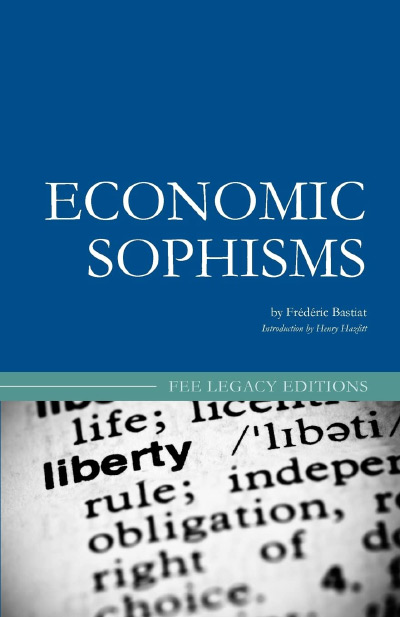 Bastiat, Frédéric. “A Negative Railroad.” In Economic Sophisms, 1st series, chap. 17, 1845.
Bastiat, Frédéric. “A Negative Railroad.” In Economic Sophisms, 1st series, chap. 17, 1845.
Ludwig von Mises wrote, “[Bastiat’s] critique of all protectionist and related tendencies is even today unsurpassed. The protectionists and interventionists have not been able to advance a single word in pertinent and objective rejoinder.”
Excerpt: “Whatever the protectionists may say, ... the basic principle of restriction is the same as the basic principle of breaks in the [railroad] tracks: the sacrifice of the consumer to the producer, of the end to the means.”
Bastiat, Frédéric. “Petition of the Manufacturers of Candles (October 1845).” Available at the Library of Economics and Liberty.
This is the most famous satire on protectionism ever composed.
Excerpt: “We are suffering from the intolerable competition of a foreign rival whose production of light, it appears, is so far superior to ours that it is flooding our national market at a price that is astonishingly low.”
Murray N. Rothbard writes, “Frédéric Bastiat’s . . . ‘Petition of the Candlemakers’ is [justly famous]; in this satiric petition to the French parliament, the candlemakers’ trade association petitions the government to protect their industry, which employs many thousands of men, from the unfair, unjust, invasive competition of a foreign light source: the sun. Bastiat’s candlemakers petition the government to shut out the sunlight all over France—a protective device that would give employment to many millions of worthy French candlemakers.”
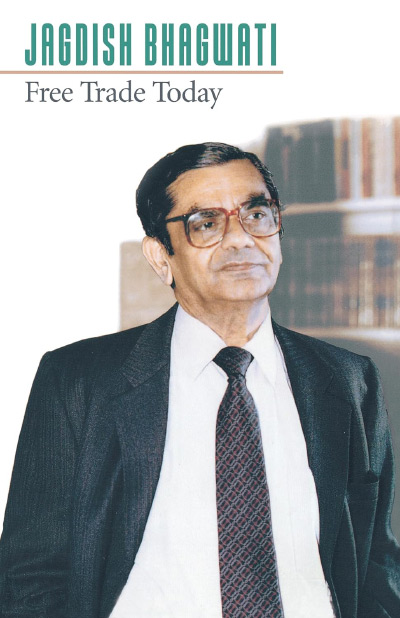 Bhagwati, Jagdish. Free Trade Today. Princeton University Press, 2002.
Bhagwati, Jagdish. Free Trade Today. Princeton University Press, 2002.
Based on the author’s lectures at the Stockholm School of Economics, and therefore accessible to the educated layperson.
The author writes that this is “a short, accessible, wide-ranging work that brings the case for free trade to the skeptics and critics today, indeed to every citizen as she encounters the confrontations over free trade and must decide who is right.”
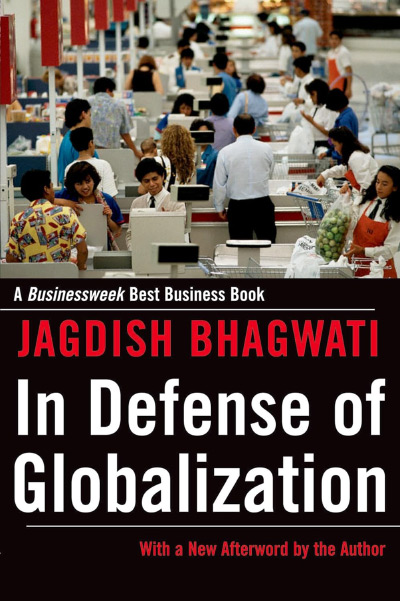 Bhagwati, Jagdish. In Defense of Globalization. Oxford University Press, 2004.
Bhagwati, Jagdish. In Defense of Globalization. Oxford University Press, 2004.
Melani Cammett writes, “Jagdish Bhagwati’s In Defense of Globalization is an important contribution. As the title reveals, the book articulates strong support for globalization, particularly in the guise of free trade and direct foreign investment. Bhagwati’s goal is to systematically debunk the principal arguments of anti-globalization activists, whom he divides into two camps: anti-establishment forces with total opposition to market-based systems, and critics who focus on more specific aspects of globalization yet, he contends, base their arguments on incomplete or poor information. Dismissing the former group, Bhagwati takes on the arguments of the latter to expose flaws in their reasoning and reveal the ‘human face’ of globalization.”
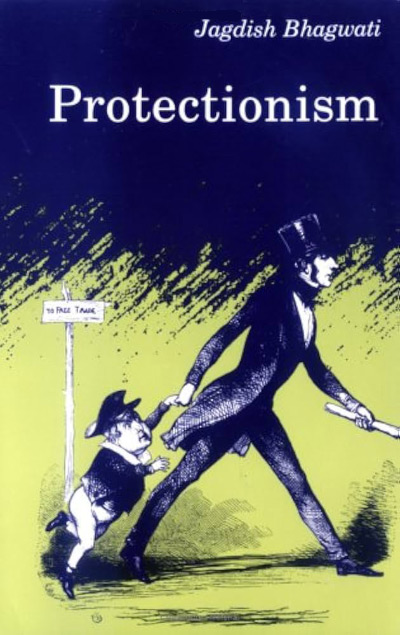 Bhagwati, Jagdish. Protectionism. MIT Press, 1988.
Bhagwati, Jagdish. Protectionism. MIT Press, 1988.
Based on the author’s lectures at the Stockholm School of Economics in 1987, and therefore accessible to the educated layperson.
Nancy E. Schwartz writes, “Bhagwati describes the forces behind recent increases in protectionism, embodied in popular calls for reciprocity, ‘fair trade’ or ‘level playing fields.’ He discusses the rise in non-tariff barriers, such as voluntary export restraints (VERs).
“He notes the similarities in arguments for protection at both ends of the manufacturing spectrum: the traditional low-technology, low-wage goods such as textiles in which other countries have comparative cost advantages, as well as the high-wage, high-technology goods that are increasing under pressure from Japan and other East Asian countries. ... Bhagwati provides insights into and from recent theoretical, empirical, and topical literature, ranging from strategic trade theory to ‘manufacturing matters.’
“Another theme of the book, based on work with Douglas Irwin, is that the pattern of protectionist sentiment in the United States bears strong similarities to the British experience in the 19th century. For example, the arguments in favor of maintaining the Corn Laws are uncannily similar to today’s popular arguments favoring fair trade over free trade. ...
“In addition, there is an excellent, if compact, bibliography on theoretical, empirical, historical, and institutional trade policy literature. The book is also filled with humor. ... [E]xpressing optimism in the continued political viability of free trade, Bhagwati cites his faith in the ‘Dracula Effect: exposing evil to sunlight helps to destroy it.’”
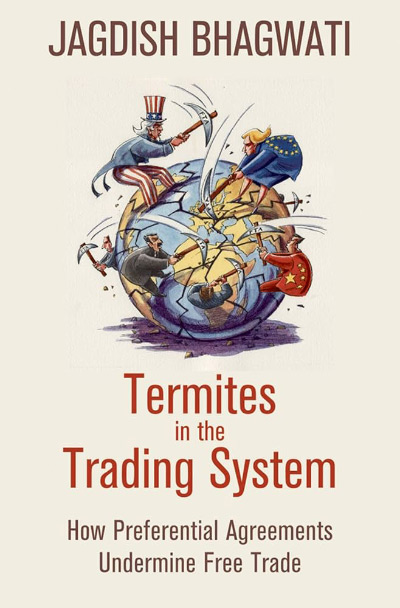 Bhagwati, Jagdish. Termites in the System: How Preferential Agreements Undermine Free Trade. Oxford University Press, 2008.
Bhagwati, Jagdish. Termites in the System: How Preferential Agreements Undermine Free Trade. Oxford University Press, 2008.
Martin Wolf writes, “The world’s foremost trade policy scholar explains why what he calls ‘preferential trade arrangements’ are not a path towards global free trade, but a dangerous step away from it. A long-standing and brave opponent of these arrangements and particularly of those between hegemonic powers and developing countries, Jagdish Bhagwati explains how they promote costly trade diversion, interfere with the efficient operation of global business and allow great powers to extract unjustified concessions from weaker countries. This book underlines the abiding wisdom of non-discrimination, the now almost completely forgotten founding principle of the world trading system, and concludes that the only way to return to sanity is by movement towards free market access for all.”
Boudreaux, Donald J. “Comparative Advantage.” Defending Globalization: Economics series. Cato Institute, September 12, 2023.
Excerpt: “Most simply, comparative advantage refers to a person’s ability and willingness to supply other people with a good or service that these other people cannot otherwise acquire at a lower cost. Described this way, comparative advantage appears trite: To say that Ann has a comparative advantage at supplying fish to Bob is to say only that, at least for Bob, the lowest-cost supplier of fish is Ann. If, therefore, Bob wants to acquire fish and have as much income remaining as possible to buy other things, he’d best buy fish from Ann. ...
“The chief nontrivial insight gained from understanding comparative advantage is this: An economic entity’s technical ability to produce a product is, by itself, irrelevant for determining if that entity should produce that product itself or acquire that product by first producing something else and then trading that something else for the desired product.”
Boudreaux, Donald J., and Nita Ghei. “The Benefits of Free Trade: Addressing Key Myths.” Policy Brief. Mercatus Center, May 23, 2018.
Excerpt: “When everyone follows the same rules-based system, there is less opportunity for cronyism, or the ability of participating nations to skew trade advantages toward favored parties. In the absence of such a system, bigger and better-connected industries can more easily acquire unfair advantages, such as tax and regulatory loopholes, which shield them from competition.”
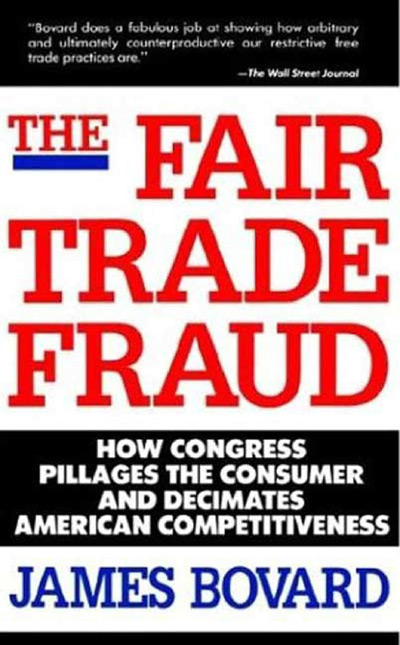 Bovard, James. Fair Trade Fraud: How Congress Pillages Consumers and Decimates American Competitiveness. St. Martins, 1991
Bovard, James. Fair Trade Fraud: How Congress Pillages Consumers and Decimates American Competitiveness. St. Martins, 1991
Excerpt: “Fair trade means government officials deciding what Americans should be allowed to buy. Fair trade is paternalism applied to international commerce. Fair trade means subjugating the economic interest of private citizens to the moral and political values of government policymakers.”
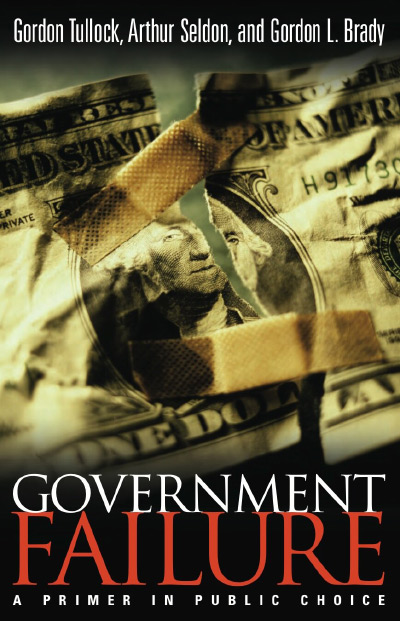 Brady, Gordon L. “Protection in International Trade.” Chapter 8 in Gordon Tullock, Arthur Seldon, and Gordon L. Brady, Government Failure: A Primer in Public Choice. Cato Institute, 2002.
Brady, Gordon L. “Protection in International Trade.” Chapter 8 in Gordon Tullock, Arthur Seldon, and Gordon L. Brady, Government Failure: A Primer in Public Choice. Cato Institute, 2002.
Excerpt: “[T]he expectation of gain in excess of cost leads special-interest groups to persuade governments into implementing national protectionist policies regardless of the harmful effects on society as a whole. Thes interest groups seek to build public support by self-serving arguments that protectionist policies promote the national interest by ‘leveling the playing field,’ protecting strategic industries from foreign competition, strengthening ‘infant industries,’ to create economic growth, preserving jobs, and other specious arguments.”
Brady, John Mark. “Against the Tide: The Life of Francis W. Hirst.” Foundation for Economic Education, June 1, 1999.
Excerpt: “After [the First World War,] Hirst continued to write on behalf of the cause of free trade. His From Adam Smith to Philip Snowden: A History of Free Trade (1925) was a short political history of free trade in Britain. In Safeguarding and Protection, first published in 1926 as a Cobden Club pamphlet and expanded into a book the following year, he explained how the Conservative government, despite Prime Minister Stanley Baldwin’s pledge against protection, had extended customs duties under the guise of ‘safeguarding’ (a euphemism for protectionism). This had reassured voters and enabled the Tories to exploit fears of Bolshevism and defeat the pro–free trade Labour and Liberals in the 1924 general election. Hirst criticized the ‘American customs union,’ contrasted the free-trade Democrats with the protectionist Republicans, and explained how high American tariffs made it difficult for European nations to pay off their war debts to the United States. He also described how the ‘tariff walls of Europe’ prevented economic recovery.”
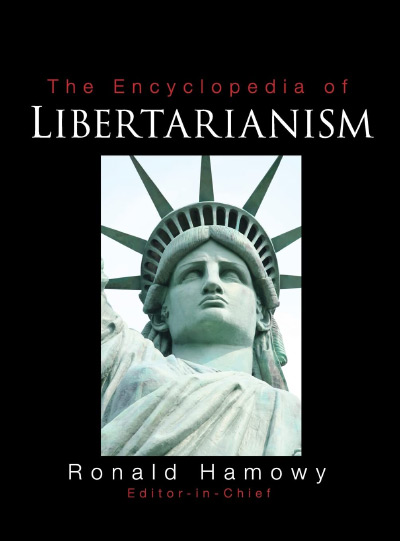 Brady, John Mark. “Cobden, Richard (1804–1865).” In Encyclopedia of Libertarianism, ed. Ronald Hamowy. Sage Publications for the Cato Institute, 2008.
Brady, John Mark. “Cobden, Richard (1804–1865).” In Encyclopedia of Libertarianism, ed. Ronald Hamowy. Sage Publications for the Cato Institute, 2008.
Excerpt: “Richard Cobden is best remembered for his partnership with John Bright in heading the movement in Britain to repeal the tariff on imported grain, known as the Corn Laws. ...
“The Manchester Anti-Corn Law Association was organized in September 1838, and its successor, the Anti-Corn Law League, in March 1839, to seek repeal of the onerous duties on imported grain. This tax kept domestic prices high for the benefit of those who owned land, who thereby received much higher agricultural rents. However, this tariff impoverished consumers, particularly those poor households, for whom bread was a principal part of their diet. Richard Cobden, John Bright, and Charles Pelham Villiers became the league’s most prominent spokesmen. ...
“The Anti-Corn Law League had a profound influence on advancing the cause of free trade in Great Britain. To this day, the league remains a splendid, but all too rare, example of how uncompromising dedication to a single, comprehensible objective, combined with sheer hard work and innovative propagandizing, can successfully accomplish that goal through peaceful means.”
Bresiger, Gregory. “Laissez-Faire and Little Englanderism: The Rise, Fall, Rise, and Fall of the Manchester School.” Journal of Libertarian Studies, vol. 13, no. 1 (1997): 45–79.
Excerpt: “[The Manchestrians] held that the Corn Laws were designed by the aristocratic farming interests to keep the price of food artificially high. Corn Law supporters argued that protecting farmers was a national-security concern, and that home-grown food would ensure plentiful stocks of grains in case some new Napoleon tried to strangle Britain again by declaring that Europe could not trade with her.
“But Adam Smith, writing of the Corn Laws, and noting that they were designed to increase the production of food, had warned that they generated more problems than they solved. ‘Famines are always caused by the supposed remedies for dearths applied by government.’ According to Smith, it was ‘the violence of government’ that ‘distorted markets.’
“Henry Ashworth, a member of the Manchester School, argued that the Corn Laws were ‘a flagrant scheme of the landlords to enrich themselves by a legal authority which oppressed all other portions of the community.’ These were another method of getting all of society’s taxpayers to pay for the blunders of a few well-connected men.”
Bright, John. Selected Speeches of John Bright on Public Questions. J. M. Dent & Sons; E. P. Dutton, 1914. Available from Internet Archive.
Excerpt: “[Let us] turn to the years 1840 and 1841, ... it was in these times that Ebenezer Elliott, the Sheffield poet—the Corn-law Rhymer—wrote his burning and scathing condemnation of this law. [In his touching lines, he shows] how the Corn Law is striking here and there almost everybody, blasting his prosperity and his hopes, and condemning him and his family to daily suffering. He turns at last to the weaver, and he says:
“‘Bread-taxed weaver, all may see,
What that tax hath done for thee,
And thy children vilely led.
Singing hymns for shameful bread,
Till the stones of every street
Know their little naked feet.’”
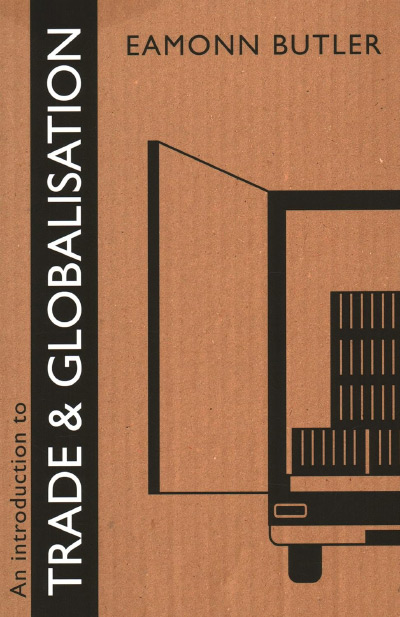 Butler, Eamonn. An Introduction to Trade and Globalisation. Institute of Economic Affairs, 2022.
Butler, Eamonn. An Introduction to Trade and Globalisation. Institute of Economic Affairs, 2022.
Excerpt: “This book is a straightforward introduction to the principles, economics and politics of international trade. Written in plain language, it should appeal to intelligent readers who are interested in the principles underpinning the international economy and the public debate about how trade is structured and managed. School and college students, as well as those in business and public policy, should all find it useful.”
Chodes, John. “Richard Cobden: Creator of the Free Market.” Ideas on Liberty, March 1993. Foundation for Economic Education.
Excerpt: “Cobden understood the moral truths behind unregulated commerce. Breaking down barriers to trading freedom broke down class barriers and obstacles to civil rights. It reduced military expansion, since a powerful navy was a legacy from the old mercantile idea that warships protected trade between colonies and other controlled markets.
“Protectionist tariffs were called ‘Corn Laws.’ They restricted the free flow of corn, wheat, barley, and oats between Great Britain and foreign countries to shield the British farmer from competition. ...
“Cobden saw repeal as the greatest single battle of his time. It would unite workers, farmers, and commercial interests against privilege to radically alter the political power structure of the country.”
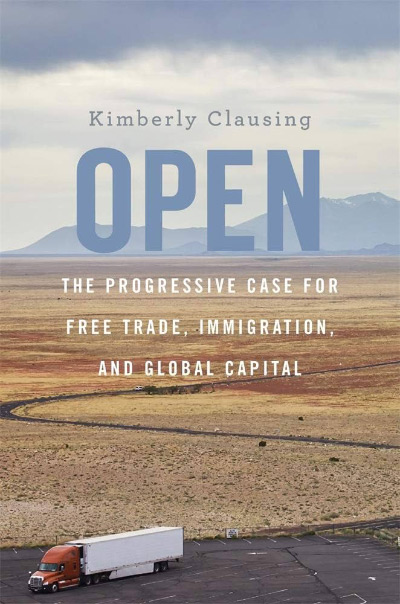 Clausing, Kimberly. Open: The Progressive Case for Free Trade, Immigration, and Global Capital. Harvard University Press, 2019
Clausing, Kimberly. Open: The Progressive Case for Free Trade, Immigration, and Global Capital. Harvard University Press, 2019
Scott Lincocome writes, “The book’s biggest strength comes, perhaps unsurprisingly, in its arguments in favor of globalization in its many forms. Chapter 3 presents the ‘compelling’ case for international trade and explains why there is a longstanding economic consensus in favor of liberalized trade and against protectionism. ... She ... dismantles prevalent claims that international trade causes net job destruction or depresses labor force participation, or that a switch to labor-intensive industries would be a net benefit for the U.S. economy. Instead, significant losses would accrue to export industries (which tend to pay better and have higher productivity) and their communities, consumers of imported industrial inputs like Boeing, U.S. companies that utilize global supply chains like Apple, and services firms (e.g., construction and retail) that would pay more and produce less without access to imports. Clausing also explains the strong correlation between trade and economic growth or unemployment, with ‘globalizer’ countries consistently outperforming non-globalizers in both cases over several decades (and bringing billions of our fellow humans out of poverty in the process).
“Clausing continues in Chapter 4 to address the so-called ‘losers’ from trade, with some emphasis on the recent findings of economist David Autor and colleagues on the ‘China Shock.’ While acknowledging those findings and associated employment effects of trade more generally, Clausing rightly explains that (1) subsequent research has shown the China Shock more likely to have redistributed U.S. jobs than to have destroyed them; and (2) economists have had difficulty distinguishing between job dislocations caused by trade and technology shocks more generally, with the bulk of the empirical work showing that the latter has had far more of an impact on U.S. labor markets than the former. She also puts these trade shocks into necessary context, explaining that the two million jobs supposedly lost to the China Shock between 1999 and 2011 are dwarfed by the six million jobs that the U.S. economy destroys in a single quarter. Finally, Clausing spends significant time showing that technological change has ‘swamped’ any negative effects on manufacturing employment caused by trade, citing decades of increasing U.S. manufacturing output and a declining share of manufacturing employment in other developed and developing countries (including manufacturing powerhouses like Germany, South Korea and Mexico).”
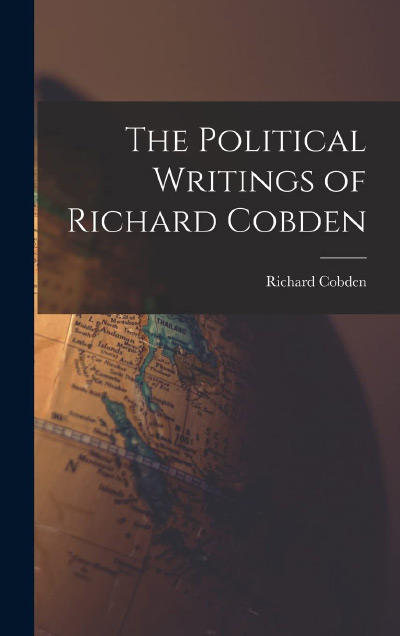 Cobden, Richard. The Political Writings of Richard Cobden, 2 vols., ed. Naomi Churgin Miller. Garland, 1973.
Cobden, Richard. The Political Writings of Richard Cobden, 2 vols., ed. Naomi Churgin Miller. Garland, 1973.
Tom G. Palmer writes, “A useful collection of the political writings of the great English Free trade anti-imperialist.”
Cobden, Richard. “Speech in Manchester, January 15, 1846.” In Speeches on Public Policy, by Richard Cobden, M.P., ed. John Bright and J. E. Thorold Rogers. Macmillan & Co., 1870.
Excerpt: “I see in the Free-trade principle that which shall act on the moral world as the principle of gravitation in the universe,—drawing men together, thrusting aside the antagonism of race, and creed, and language, and uniting us in the bonds of eternal peace. I have looked even farther. I have speculated, and probably dreamt, in the dim future—ay, a thousand years hence—I have speculated on what the effect of the triumph of this principle may be. I believe that the effect will be to change the face of the world, so as to introduce a system of government entirely distinct from that which now prevails. I believe that the desire and the motive for large and mighty empires; for gigantic armies and great navies—for those materials which are used for the destruction of life and the desolation of the rewards of labour—will die away; I believe that such things will cease to be necessary, or to be used, when man becomes one family, and freely exchanges the fruits of his labour with his brother man.”
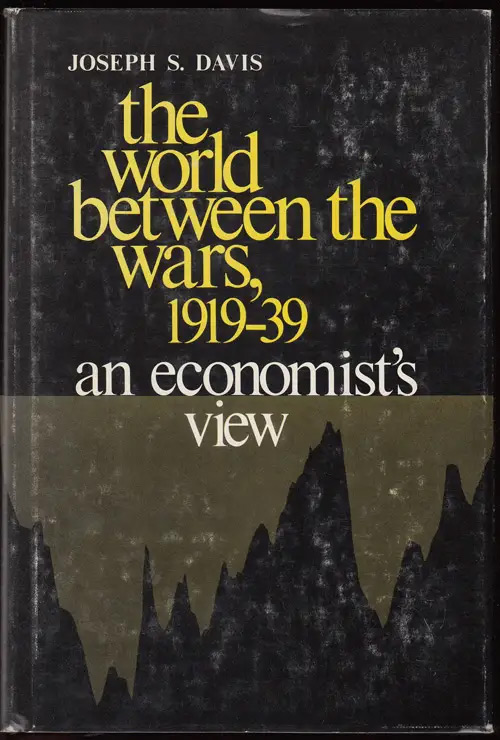 Davis, Joseph S. The World Between the Wars, 1919–39: An Economist’s View. Johns Hopkins University Press, 1975.
Davis, Joseph S. The World Between the Wars, 1919–39: An Economist’s View. Johns Hopkins University Press, 1975.
Tom G. Palmer writes, “The best economic history of the interwar period, both in America and on the international scene. Looks at the Depression, governments’ response, protectionism, and more. A crucially important book.”
Ebeling, Richard. “The Ghost of Protectionism Past: The Return of Friedrich List.” Freedom Daily (Future of Freedom Foundation). April 1, 1994.
Excerpt: Friedrich List’s significance is that his book The National System of Political Economy became one of the most important rationales for protectionism and government intervention during the remainder of the 19th century. Indeed, his arguments—and the arguments of those whom he inspired—were the basis for the rejection of free trade and for the revival of protectionism and interventionism in Imperial Germany during the second half of the last century.
Three premises were at the foundation of List’s protectionist system. First, the idea of “the infant industry.” List argued that ... [t]he government of an industrializing nation had to erect protectionist barriers to keep the prices of foreign manufactured goods as high as the costs of production of the new industrializing domestic enterprises. Only in this way would those domestic firms have a chance to survive in the market and establish themselves firmly enough to finally face the older foreign industrial enterprises. ...
Second, the idea of “forced capital investment.” ... In his eyes, a nation that specialized primarily in agriculture or the selling of raw materials on the world market would never have the same income-earning capacity as those nations specializing in capital-intensive manufacturing. ... And these longer-term benefits would outweigh the short-term losses from paying higher prices for foreign and domestic consumer goods.
Third, the idea of “the national interest.” List accused Adam Smith and other free-trade economists of “cosmopolitanism.” ... List argued, ... it was often necessary for the individual to sacrifice his private interest in the arena of trade and profit opportunities for the national interest of the country to which he belonged. Since other nation-states, in the real world, used political power to gain economic advantages for themselves in international trade, one’s own nation had to do the same; and to further that end, one’s own government had the right and responsibility to regulate and control the economic relations between its citizens and the peoples of other countries.
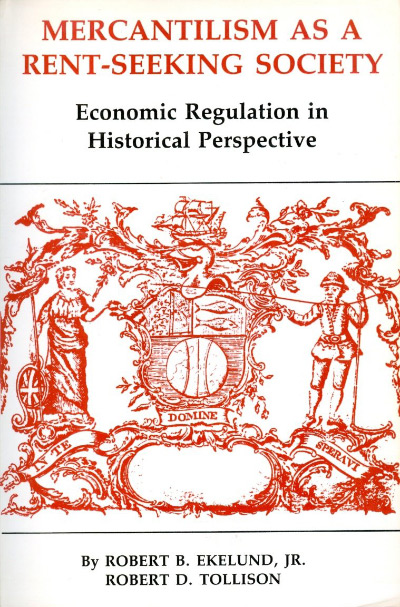 Ekelund, Robert B., Jr., and Robert D. Tollison. Mercantilism as a Rent-Seeking Society: Economic Regulation in Historical Perspective. Texas A&M University Press, 1981.
Ekelund, Robert B., Jr., and Robert D. Tollison. Mercantilism as a Rent-Seeking Society: Economic Regulation in Historical Perspective. Texas A&M University Press, 1981.
Laurence S. Moss writes, “According to the authors of this book the mercantile world of the 16th, 17th and 18th centuries was bristling with French, English and Dutch businessmen who bribed, lobbied and paid handsome sums for the regulations they desired. The best regulations were those that cartelized product markets while keeping resource market competitive. In that way a happy mutuality of rent-seeking activity united merchant and government against the exploited common folk. According to Ekelund and Tollison, mercantile society was unabashedly a ‘rent-seeking society’ and rent-seeking is, as Kroeger and Tullock have explained, wasteful activity. Thus the authors of this work, though respectful of the previous work of J. Viner, E. Heckscher and C. W. Cole, have little patience for those who impute noble motives to the merchants, such as proposing regulations in order to build a strong unified national state. Instead, ‘the emperor has no clothes,’ that is, the merchants were out for themselves and used government to promote their fortunes at the expense of overall national economic development.”
Murray N. Rothbard writes, “Ekelund and Tollison have a question: How did mercantilism disappear? Why did free trade come in? If everybody’s seeking monopoly privilege, and we accept the usual public-choice stuff about how consumers are not interested, and privilege seekers are always interested, then how did they get rid of mercantilism? Why isn’t it locked in forever, as [George] Stigler claims statism is locked in forever now?
“The obvious explanation, for anybody who thinks that ideas are important, is the free-trade movement: a mass movement, consisting of merchants, lower classes, intellectuals, etc. The free-trade movement swept the board. It was a mighty ideological movement that got rid of this web of privilege.
“But Ekelund and Tollison can’t say that because they think ideology is unimportant. So what they say is they base it all on transaction costs!”
 Ekelund, Robert B., Jr., and Robert D. Tollison. Politicized Economies: Monarchy, Monopoly and Mercantilism. Texas A&M University Press, 1997.
Ekelund, Robert B., Jr., and Robert D. Tollison. Politicized Economies: Monarchy, Monopoly and Mercantilism. Texas A&M University Press, 1997.
Edwin G. West writes, “In [their] fascinating concluding chapter, the authors reiterate their belief that historians have looked in the wrong areas for explanations. The propositions for instance that mercantilism was a macro instrument for nation building, a favorable balance of trade, or specie accumulation have been misleading. Instead these so-called ‘objectives’ were the rationalizations of rent-seekers aiming for favors from monarchies and state bureaucracies. Ideas, moreover, have not been the primary causal forces to change, but rather have been ‘a veneer over the underlying self- interested forces of the components of society.’”
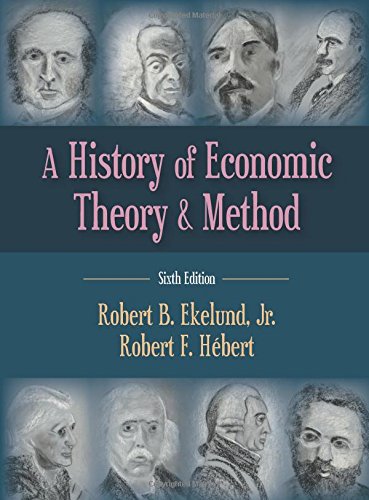 Ekelund, Robert B., Jr., and Robert F. Hebert, A History of Economic Theory and Method, 6th ed. Waveland Press, 2014.
Ekelund, Robert B., Jr., and Robert F. Hebert, A History of Economic Theory and Method, 6th ed. Waveland Press, 2014.
For our purposes, the important chapters are chap. 3 (on mercantilism), chap. 5 (on Adam Smith), and chap. 11 (which includes discussion of Friedrich List).
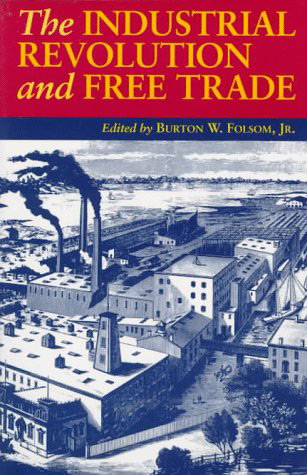 Folsom, Burton, Jr., The Industrial Revolution and Free Trade. Foundation for Economic Education, 1996. Download PDF
Folsom, Burton, Jr., The Industrial Revolution and Free Trade. Foundation for Economic Education, 1996. Download PDF
Includes, among others, Murray N. Rothbard on mercantilism and essays on Adam Smith, John Bright, and Richard Cobden.
Formaini, Robert L. “David Ricardo: Theory of Free International Trade.” Economic Insights, vol. 9, no. 2 (January 1, 2004). Federal Reserve Bank of Dallas.
Excerpt: “Ricardo favored an end to the Corn Laws, arguing that Britain ought to import corn from countries better equipped to produce it at lower cost. ... Twenty-three years after his death, the laws were repealed and Ricardo’s international free trade agenda became one with British public policy. Ricardo had provided an answer to Britain’s long-term growth problems, and Britain became the ‘workshop of the world,’ importing most of its food and ‘outsourcing’ most of its agricultural employment. Ricardo’s ideas became ‘the fountainhead of all nineteenth-century free trade doctrine!’
“One of the ideas for which Ricardo is most remembered is the theory of comparative advantage. Ricardo demonstrated that for two nations without input factor mobility, specialization and trade could result in increased total output and lower costs than if each nation tried to produce in isolation. Since Ricardo’s exposition, the distinction between absolute and comparative advantage has been taught as one of the field’s most brilliant insights. Nations will export not only what they have an absolute advantage in producing, but also what they have a comparative cost edge in producing.”
Formaini, Robert L. “Jean-Baptiste Say: Foundations of France’s Free Trade Tradition.” Economic Insights, vol. 11, no. 1 (January 1, 2006).Federal Reserve Bank of Dallas.
A brief profile by an American economist of French economist Jean-Baptiste Say.
Freytag, Andreas, and Phil Levy. “The Trade Balance and Winning at Trade.” Defending Globalization: Economics series. Cato Institute, October 3, 2024.
Excerpt: “[T]he trade balance is a particularly bad measure of national well-being. That’s not just because of problematic reasoning behind the argument but because it’s not usually what shows up in the numbers.”
Friedman, Milton, and Rose D. Friedman. “The Case for Free Trade.” Hoover Digest, no. 4 (1997).
Excerpt: “One voice that is hardly ever raised is the consumer’s. That voice is drowned out in the cacophony of the ‘interested sophistry of merchants and manufacturers’ and their employees. The result is a serious distortion of the issue. For example, the supporters of tariffs treat it as self-evident that the creation of jobs is a desirable end, in and of itself, regardless of what the persons employed do. That is clearly wrong. If all we want are jobs, we can create any number—for example, have people dig holes and then fill them up again or perform other useless tasks. Work is sometimes its own reward. Mostly, however, it is the price we pay to get the things we want. Our real objective is not just jobs but productive jobs—jobs that will mean more goods and services to consume.
“Another fallacy seldom contradicted is that exports are good, imports bad. The truth is very different. We cannot eat, wear, or enjoy the goods we send abroad. We eat bananas from Central America, wear Italian shoes, drive German automobiles, and enjoy programs we see on our Japanese TV sets. Our gain from foreign trade is what we import. Exports are the price we pay to get imports. As Adam Smith saw so clearly, the citizens of a nation benefit from getting as large a volume of imports as possible in return for its exports or, equivalently, from exporting as little as possible to pay for its imports.
“The misleading terminology we use reflects these erroneous ideas. ‘Protection’ really means exploiting the consumer. A ‘favorable balance of trade’ really means exporting more than we import, sending abroad goods of greater total value than the goods we get from abroad. In your private household, you would surely prefer to pay less for more rather than the other way around, yet that would be termed an ‘unfavorable balance of payments’ in foreign trade.”
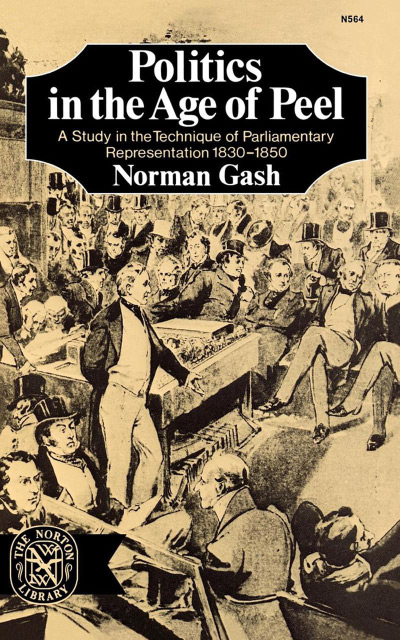 Gash, Norman. Politics in the Age of Peel: A Study in the Technique of Parliamentary Representation 1830–1850. 1953.
Gash, Norman. Politics in the Age of Peel: A Study in the Technique of Parliamentary Representation 1830–1850. 1953.
Famous historical account of the British parliamentary politics of repealing the protectionist corn laws.
Geloso, Vincent. “Protectionism’s Bad Economic History.” EconLog, August 30, 2024.
Excerpt: “[Oren] Cass and other protectionists often cherry-pick periods of protectionism, attributing all observed growth to their favored policies. This tactic, much like a magician’s sleight of hand, is designed to dazzle the audience by masking the real factors at play.”
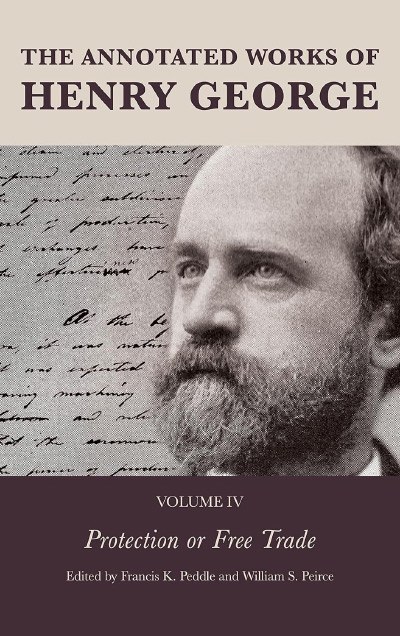 George, Henry. Protection or Free Trade: An Examination of the Tariff Question with Especial Regard to the Interests of Labor. 1886. Available from the Library of Economics and Liberty.
George, Henry. Protection or Free Trade: An Examination of the Tariff Question with Especial Regard to the Interests of Labor. 1886. Available from the Library of Economics and Liberty.
Nobel Laureate in Economics Milton Friedman called this book “the most rhetorically brilliant work ever written on the subject.”
Jim Powell summarizes George’s argument: “As George pointed out, trade is voluntary, driven by individual buyers and sellers, ‘Trade is not invasion,’ he wrote. ‘It does not involve aggression on one side and resistance on the other, but mutual consent and gratification. There cannot be a trade unless the parties to it agree.’
“[George] posed a thought experiment to challenge the common view that exports are good, and imports are bad: ‘To have all the ships that left each country sunk before they could reach any other country would, upon protectionist principles, be the quickest means of enriching the whole world, since all countries could then enjoy the maximum of exports with the minimum of imports.’ ...
“George invoked history, too. The first civilizations, he wrote, did not rise in isolated places, shielded ‘by rugged mountain-chains, by burning deserts, or by seas too wide and tempestuous for the frail bark of the early mariner.’ Why? Because they depended on trade. ‘It is on accessible harbors, by navigable rivers and much-traveled highways that we find cities arising and the arts and sciences developing.’
“War was the analogy in what are perhaps George’s most famous lines: ‘Blockading squadrons are a means whereby nations seek to prevent their enemies from trading; protective tariffs are a means whereby nations attempt to prevent their own people from trading. What protection teaches us, is to do to ourselves in time of peace what enemies seek to do to us in time of war.’”
Grampp, William D. Manchester School of Economics. Stanford University Press, 1960.
Liberty Fund: “A history of the so-called ‘Manchester School’ of economic thought which emerged in the 19th century in order to challenge protectionism, especially the corn laws in Britain. It continued as a force after the repeal of the Corn Laws in 1846 with its advocates promoting peace and free trade.”
Griswold, Daniel. Mad About Trade: Why Main Street America Should Embrace Globalization. Cato Institute, 2009. Download PDF
Excerpt: “This book offers a clean view from a vantage point that strives to make sense of America’s changing place in the world economy and the effect this change is having on families and workers across America. This book is also unapologetically American centered. It examines every aspect of the globalization debate from the perspective of what it means for millions of typical American families. This book is written for my fellow Americans living in small towns, farmhouses, cities, and suburbs who wonder where we are all heading in this more open world of ours.”
Guyot, Yves. The Comedy of Protection. Trans. M. A. Hamilton. Hodder and Stoughton, 1906.
Liberty Fund: “Guyot provides a history of French tariff policy from the time of Colbert and a discussion of its effects on particular industries such as textiles and food. He then discusses protection in the US and Germany and refutes many arguments in favour of tariffs.”
Haberler, Gottfried von. The Theory of International Trade. German edition, 1933; English translation (revised by the author), William Hodge & Company, 1936.
Haberler was a Harvard economics professor and president of the American Economic Association and of the International Economic Association.
Encyclopaedica Britannica: Haberler became famous chiefly as a writer on international trade, and his major work, The Theory of International Trade (1937), is considered a classic. Particularly influential was his reformulation of the theory of comparative costs in terms of opportunity cost. He introduced the production substitution curve (now referred to as the production-possibility frontier), which offered a framework for considering the effects of multiple variables in the process of production. This led to major insights in the theory of international trade. Haberler also helped to revive the influence of the purchasing power parity doctrine, which states that relative price levels are major determinants of equilibrium exchange rates.
Hazlitt, Henry. “Free Trade or State Domination?” The American Scholar, vol. 14, no. 1 (Winter 1944–45): 9–15.
Excerpt: “[G]overnment officials, even when they really understand (which is very rarely) the basic economic forces that they are trying to control, are almost never disinterested. They are almost certain to reflect the special interests of some political pressure group. The interests of the pressure groups represented by the bureaucrats of one nation are certain to clash with those of the pressure groups represented by the bureaucrats of another. And these conflicting interests, precisely because they are represented by their respective governments, are far more likely to clash openly, directly and politically than in a world of genuine free trade.”
Hirst, F. W. From Adam Smith to Philip Snowden: A History of Free Trade in Great Britain. T. F. Unwin, 1925. Available from Internet Archive.
Hirst was editor of The Economist magazine from 1907 to 1916. Historian G. P. Gooch said of him that “his horror of tariffs, huge armaments, and war was hardly greater than his detestation of the omnipotent State.”
Excerpt: “The principle of Free Trade was the principle of the division of labour; every part of the world was to supply what it was best fitted to produce and all mankind would benefit from this cosmopolitan policy. The individual trader or manufacturer, while pursuing his own interest, would be ‘led by an invisible hand to promote an end which was no part of his intention.’ Rousseau had said that man was born free and everywhere was in chains, and similarly the burden of the Wealth of Nations was that trade and industry ought to be free and were everywhere in chains. National wealth would increase if men were left to seek their own wealth without interference, and the gain of the individuals who made up the community would be the gain of the community.”
Hirst, F. W., ed., Free Trade and Other Fundamental Doctrines of the Manchester School. Harper & Brothers, 1903; reprint, A. M. Kelly, 1968.
Liberty Fund: “A collection of speeches and articles illustrating the broad range of views of the British classical liberals and free traders of the 19th century known as the Manchester School. They cover foreign policy, free trade, the repeal of the corn laws, war, colonial policy, education, and social reform. They were written by Richard Cobden, John Bright, Thomas Tooke, Joseph Hume, W.J. Fox, Milner Gibson, and William Molesworth.”
John Mark Brady writes that this is a “useful anthology of speeches and writings.”
Hochberg, Fred P. Trade Is Not a Four Letter Word. Avid Reader Press, 2020.
Eamonn Butler writes, “Easy-to-read defence of free trade from a former US trade official, this book demonstrates how poor life would be without all the goods we import from other countries. It reviews the misconceptions about trade and, through the life histories of six everyday products, it explains how trade works and how it has changed our lives for the better.”
Howe, Anthony. Free Trade and Liberal England, 1846–1946. Oxford University Press, 1998.
Frank Trentmann writes, “Anthony Howe now fills not only many gaps in our understanding of the politics of an idea central to Victorian and Edwardian Britain but also prompts important questions for the study of political economy. ... This rich, detailed account of the Victorian survival of free trade as a story of adaptive mutation in different spheres of the political process has implications for our understanding of the changing sources of the political power of economic ideas in modern Britain. ... This book marks an important step away from views of Cobdenism as a static monolith or as a function of economic or State structures and, by restoring free trade politics as a major historical subject in its own right, opens the way towards a more critical understanding of the place of free trade in modern Britain.”
Hudgins, Edward L., ed. Freedom to Trade: Refuting the New Protectionism. Cato Institute, 1997. (out of print)
Charles Rowley writes, “Free trade against protectionism is one of those few issues over which economists have reached consensus. Free trade attracts the vote of the very large majority of economists, whereas protectionism typically attracts the support only of those who are paid mouthpieces for the special interests. Yet this remarkable consensus belies the facts of the international trade reality. The guns of the economists, like the French guns of the Maginot Line, appear to point in the wrong direction. International trade is highly regulated; and protectionism dominates free trade despite the cogent economic arguments against it.
“The book under review represents a sterling effort to carry the case for free trade forward to the general public in language stripped of the jargon of economics. It is written well and cogently argued. ... I recommend this book to anyone who is eagerly searching for a short volume capable of explaining in nontechnical language the case for free trade and the arguments against trade protection.”
Hume, David. Of the Balance of Trade. 1777.
Eugene F. Miller writes, “Hume combats the suspicious fear or ‘jealousy’ of free trade that mercantilism had helped to promote. This essay seeks to allay the fear that an imbalance of imports over exports will deplete a nation’s supply of gold and silver money. Hume develops a ‘general theory’ according to which money bears a regular proportion to the industry and commodities of each nation. In the natural course of things, this level will be preserved; and a nation’s attempts to hoard up a supply of money that exceeds this natural level, by trade barriers and restrictions on the circulation of money, are ineffectual and, at worst, destructive.”
Irwin, Douglas A. Against the Tide: An Intellectual History of Free Trade. Princeton University Press, 1998.
George C. Leef writes, “In Against the Tide, Douglas A. Irwin investigates the intellectual history of the debate over free trade. ‘With uncanny regularity,’ he writes, ‘a major theoretical argument for protection surfaces every few decades and sparks controversy among economists about the strengths and weaknesses of the case for free trade.’ In view of the tendency of Americans to engage in bouts of protectionist rhetoric and policy, one welcomes a book that reaffirms the value of free trade and debunks the arguments against it. ...
“Free trade’s great virtue is that it keeps government from manipulating the economy by altering natural patterns of production and trade. Government might enact innumerable protectionist or manipulative trade interferences; it can adopt but one free-trade policy, which consists simply of the absence of all such interference. As Alfred Marshall wrote, free trade is an advantageous expedient because ‘it is not a device, but the absence of any device.’”
Irwin, Douglas A. Free Trade Under Fire, 5th ed. Princeton University Press, 2020.
Brink Lindsey writes, “[T]he publication of Douglas Irwin’s Free Trade Under Fire is ... a welcome event. Irwin, a professor at Dartmouth, is that happy exception among economists: one who writes clear, jargon-free English. In this slender volume, he reviews the gamut of current misconceptions about trade and patiently, politely dismantles the lot of them. For all those who’ve been bamboozled by one or another of the accusations now hurled against open markets, or who doubt those accusations but don’t have the facts and figures to respond to them effectively, Free Trade Under Fire has come to the rescue.
“Irwin is particularly effective at addressing the meat-and-potatoes protectionism now advanced most vigorously by organized labor and the steel and textile lobbies. According to that mindset, imports are the enemy of ordinary, hard-working Americans: They threaten existing jobs and drive down wages by forcing us to compete with Third World nations where workers make only a few dollars a day. As Irwin shows, all the claims that imports reduce the total number of jobs by this much or that much are pure eyewash. Trade flows don’t affect aggregate employment one way or the other.”
Irwin, Douglas A. “Political Economy and Peel’s Repeal of the Corn Laws.” Economics and Politics, vol. 1, no. 1 (Spring 1989): 41–59.
Abstract: “The repeal of the Corn Laws in Britain in 1846 has been much debated as to whether interest groups or ideology contributed most to this policy reform. This paper examines [the] view that Sir Robert Peel, in proposing repeal, converted from protection to free trade under the influence of the ideas of political economy. It is shown that economic ideas had a crucial influence on Peel.”
Irwin, Douglas A. “Tariffs and Growth in Late Nineteenth Century America.” National Bureau of Economic Research Working Paper No. 7639, April 2000.
Abstract: Were high import tariffs somehow related to the strong U.S. economic growth during the late nineteenth century? This paper examines this frequently mentioned but controversial question and investigates the channels by which tariffs could have promoted growth during this period. The paper shows that: (i) late nineteenth century growth hinged more on population expansion and capital accumulation than on productivity growth; (ii) tariffs may have discouraged capital accumulation by raising the price of imported capital goods; (iii) productivity growth was most rapid in non-traded sectors (such as utilities and services) whose performance was not directly related to the tariff.
Kalt, Joseph P. “The Political Economy of Protectionism: Tariffs and Retaliation in the Timber Industry.” In Trade Policy Issues and Empirical Analysis, ed. Robert E. Baldwin. University of Chicago Press, 1988.
Excerpt: “[T]he U.S. lumber industry was able to organize itself into a highly effective lobby group that was able to organize virtually all timber and lumber producers, suppress free-rider factionalism, produce technical legal and analytic submissions to the relevant administrative agency, and enlist particularly important congressional support in its appeals to the White House, the Commerce Department, and the [International Trade Commission]. ...
“The path of protectionism that this case reveals is sobering. It is not a picture of the United States engaged in strategic moves to improve the national welfare. It is not even a picture of the United States and its trading partners engaging in mutually destructive rounds of economic retaliation. Rather, it is a picture of the United States pushed into protectionist measures by powerful domestic political interests and then, through the foreign policy branches of government, having to find ways to quickly halt the resulting trade war and appease the affected foreign nations. The United States must act in this way because, as the dominant member of its alliances, it is forced to bear the brunt of the responsibility for maintaining those alliances. Thus, this case suggests that, at least when it affects allies, protectionism can raise the cost and inhibit the conduct of foreign economic and political policy.”
Krauss, Melvyn. How Nations Grow Rich: The Case for Free Trade. Oxford University Press, 1997.
Excerpt: “Because of its evolving protectionism, the growth of the welfare state now threatens the very specialization and interdependence that is the basis for Western prosperity.”
Krueger, Anne O. International Trade: What Everyone Needs to Know. Oxford University Press, 2020.
Eamonn Butler writes, “Very comprehensive review of all aspects of trade, yet easy to read. It looks at the recent history of trade and the issues facing trade negotiations today, the case for free trade and the ill effects of protectionism, the ‘trade deficit’ issue, the job-protection issue, currency manipulation, the need for international policy on trade, trade negotiations and remedies, China, developing countries, regional trade deals and much else.”
Krugman, Paul. Pop Internationalism. MIT Press, 1996.
David R. Henderson writes, “His excellent book Pop Internationalism and his popular articles of the 1990s, many of them in the web publication Slate, make a strong case for free trade. ...
“In his popular writing, Krugman is at his best when defending free trade. He becomes passionate, showing a deep concern for the well-being of people around the world. One such example is ‘In Praise of Cheap Labor,’ published in Slate in 1997. In it, Krugman told of Smokey Mountain, a huge garbage dump in Manila in which men, women, and children made a living combing through garbage for valuable items. Low-wage jobs in multinational companies’ factories in the Philippines, Bangladesh, and other poor countries, he noted, are much better alternatives. Because multinational companies hired many of these poor workers, he wrote that ‘the result has been to move hundreds of millions of people from abject poverty to something still awful but nonetheless significantly better.’
“One of Krugman’s most powerful articles is ‘Ricardo’s Difficult Idea.’ In that piece, Krugman shared his frustration, one that many economists have felt, that the vast majority of non-economist intellectuals do not understand the insight that David Ricardo had about free trade almost 200 years ago. Ricardo’s insight was that people specialize in producing the goods and services in which they have a comparative advantage. The result is that we never need to worry about low-wage countries competing us out of jobs because the most they can do is change the items in which we have a comparative advantage. Krugman pointed out that, although we can explain Ricardo’s insight to our economics students, most non-economist intellectuals are unwilling to take even ten minutes to understand it.”
LaHaye, Laura. “Mercantilism.” In The Fortune Encyclopedia of Economics, ed. David R. Henderson. Warner Books, 1993
Excerpt: “Of the false tenets of mercantilism that remain today, the most pernicious is the idea that imports reduce domestic employment. Labor unions have used this argument to justify protection from imports originating in low-wage countries, and there has been much political and media debate about the implications of offshoring of service sector jobs for national employment. Many opponents have claimed that offshoring of services puts U.S. jobs at risk. While it does threaten some U.S. jobs, it puts no jobs at risk in the aggregate, however, but simply causes a reallocation of jobs among industries.
“Another mercantilist view that persists today is that a current account deficit is bad. When a country runs a current account deficit, it is either borrowing from or selling assets to the rest of the world to finance expenditure on imports in excess of export revenue. However, even when this results in an increase of net foreign indebtedness, and associated future debt-servicing requirements, it will promote economic wealth if the spending is for productive purposes that yield a greater return than is forgone on the assets exchanged to finance the spending. Many developing countries with high rates of return on capital have run current account deficits for extremely long periods while enjoying rapid growth and solvency. The United States was one of these for a large part of the nineteenth century, borrowing from English investors to build railroads.”
Lemieux, Pierre. What’s Wrong with Protectionism: Answering Common Objections to Free Trade. Rowman & Littlefield, 2018.
Samuel Gregg writes, “Lemieux begins by outlining what he regards as the seven most prominent protectionist arguments against free trade in America today: 1) American workers can’t compete against low-cost foreign producers. 2) Free trade harms the United States. 3) Free trade brings detrimental trade deficits. 4) America is losing its factories. 5) Free trade destroys jobs. 6) Free trade lowers wages. 7) Free trade isn’t fair, because the playing field isn’t level. ...
“Lemieux clarifies that we shouldn’t assume that free trade is the same thing as trade agreements. ... [T]hey aren’t one and the same. Being negotiated by governments, trade agreements invariably reflect the impact of extensive lobbying by groups ranging from entire industries to politically influential businesses and unions. They all want something out of the agreement which their government is hammering out with other governments. And that ‘something’ often amounts to some form of preferential treatment, which is to say, protectionism.
“Lemieux offers a complementary but slightly different take on this insight. Trade agreements, he observes, ‘are partly about free trade, partly about harmonizing regulation.’ ... Such regulations are, after all, often a form of protectionism. It’s even worse if the harmonization involves stabilizing subsidies and tariffs at higher rather than lower levels. ...
“Lemieux puts a particular accent upon free trade as ‘the freedom to import.’ ... Lemieux’s point is that Americans’ freedom to import (that is, the liberty to buy internationally) is the great benefit conferred by free trade. ‘Just as individuals sell goods or labor in order to buy something,’ Lemieux writes, ‘countries export in order to import.’ America and Americans profit from what they are receiving from abroad. The more we can import, the better off we are in terms of material prosperity.”
Lincicome, Scott, and Arjun Anand. “The ‘China Shock’ Demystified: Its Origins, Effects, and Lessons for Today.” Defending Globalization: Economics series. Cato Institute, December 12, 2023.
Excerpt: “Economists agree that the China Shock is not abnormal (like all trade liberalization, it creates more ‘winners’ than ‘losers’ and thus net benefits) and that, since the shock ended a decade ago, raising tariffs today would be ineffective and costly.”
Lincicome, Scott. Doomed to Repeat It: The Long History of America’s Protectionist Failures. Policy Analysis No. 819. Cato Institute, August 22, 2017.
Excerpt: “This paper surveys academic literature from three periods of American history: from the founding to the United States’ entry into the General Agreement on Tariffs and Trade (GATT) in 1947; from the GATT’s early years to the creation of its successor, the World Trade Organization (WTO), in 1995; and the current WTO era. These surveys show that, contrary to the fashionable rhetoric, American protectionism has repeatedly failed as an economic strategy.”
Lindsey, Brink. Against the Dead Hand: The Uncertain Struggle for Global Capitalism. Wiley, 2002.
John R. Hanson II writes, “Lindsey ... starts blandly, stating the consensus view that the Industrial Revolution made possible an unprecedented degree of international integration by means of plunging transportation and communication costs in the second half of the nineteenth century. Then, becoming boldly original, he identifies a nasty by-product, the rise of a widespread engineering attitude toward economics and a concomitant faith in technology and science as the engines of economic progress. This belief, he claims, in turn fostered faith in top-down control and central planning as the appropriate means for encouraging economic development.
“The results at the political level were a set of policies and programs that he labels the Industrial Counterrevolution. Generally speaking, this sensibility was conducive to a collectivist or at least nonliberal social order because social institutions and the rule of law were deemed at best secondary or at worst irrelevant in promoting economic progress, which was viewed as a mere engineering problem. Following from the ascendancy of collectivism, however, was the death of the cosmopolitan vision of free trade and international peace because they came increasingly into conflict with national goals and group solidarity but were not perceived as critical to national prosperity. Thus, during the interwar period, the old international system met an untimely end when confronted with a variety of challenges, including new political realities, inflation and debt in various countries, and ultimately the Great Depression.”
Longmate, Norman. The Breadstealers: The Fight Against the Corn Laws, 1838–1846. St. Martin’s Press, 1984.
Publisher’s description: “This book tells one of the great success stories of British history. When the Anti-Corn-Law League was founded in 1839 it was opposed by every established interest in the country. To remove the import duties on corn, so almost all influential people believed, would ruin the landowners who were the backbone of the country and starve the already impoverished farm workers. Even the industrial workers, who stood to gain most, were far from united in support of the League. Despite all this, the members of the League went about their task with extraordinary energy and skill. They were, on the whole, men of affairs, used to conducting business effectively, and they were led by some of the great political personalities of the Victorian age, most notably Cobden and Bright. Norman Longmate tells the whole story of the League, from its tentative beginnings, with a few desperately underpaid lecturers touring the country urging the case for repeal, up to its triumphant conclusion on the dramatic night in the House of Commons when Sir Robert Peel split the Conservative Party by conceding what the League had always stood out for, despite all temptations to compromise—total repeal of the Corn Laws.”
Martin, Emmanuel. “The Economics of Peace: How Richer Neighbors Are Very Good News.” In Peace, Love and Liberty, ed. Tom G. Palmer. Jameson Books, 2014.
Excerpt: “Jean-Baptiste Say (1767–1832) is sometimes considered the ‘French Adam Smith,’ but in fact he was much more than merely a popularizer of Smith’s insights. He advanced significantly on Smith’s thought. Like Smith, he was a critic of war, colonialism, slavery, and mercantilism and an advocate of peace, independence, liberation, and freedom of trade. He advanced beyond Smith not only in explaining that services have value (indeed, that the value of material goods is due to the services they render to us), but that the creation of goods and services is the source of the demand for other goods and services. That’s sometimes called ‘Say’s Law of Markets.’ It’s a very important insight, not only for ‘macroeconomics,’ but for social relations generally, and for international relations in particular. If people are free to trade, the increasing wealth of one party is not harmful to, but is beneficial to the prosperity of their trading partners, for the increasing prosperity of one trading partner means that there is more effective demand for the goods and services of the others.”
McGee, Robert W. “The Cost of Protectionism: Should the Law Favor Producers or Consumers?” Georgia Journal of International and Comparative Law, vol. 23 (1993): 529–557.
Excerpt: “There is no doubt that protectionism costs. But it is less clear exactly how much it costs and who pays. And while protectionism results in a deadweight loss—there are more losers than winners—some individuals and groups gain from protectionism. And it is those who stand to gain who have the ear of the legislature, at least for the most part. Part I of this article provides an overview of protectionism and the costs associated with it. Part III examines the monetary costs of protectionism, with emphasis on the costs of protectionism in the auto, steel, textile and agricultural industries. Part IV discusses the nonmonetary costs associated with protectionism, such as unemployment, reduction in social harmony, reduced choice and rights violations. Part V concludes that protectionism is a bad policy, whether viewed from a utilitarian or rights perspective, and recommends that laws that support protectionism should be repealed because protectionism is not in the public interest.”
Michel, Norbert. “Global Capital Flows and the Balanced Trade Myth.” Defending Globalization: Economics series. Cato Institute, December 12, 2023.
Excerpt: “Trying to ensure that trade flows—or capital flows—are regularly ‘balanced’ has no foundation in economic theory. Simply put, a country’s capital inflows do not have to match its capital outflows, just as a country’s trade inflows (imports) do not have to match its trade outflows (exports). The failure of these flows to ‘balance’ does not prevent a nation from reaching its maximum economic potential. Economically, it would make as little sense to try to balance these figures as it would to try to balance the goods or capital flows between Walmart and American consumers.”
Niskanen, William A. “U.S. Trade Policy.” Regulation, vol. 12, no. 3 (Fall 1988): 34–42.
Excerpt: “[W]e need to regain the moral and economic high ground for free trade. The fundamental moral case for free trade, both within nations and between nations, is based on the principle of consent. The most important role of government is to secure the rights of individuals to make consensual arrangements across national borders. The economic case for free trade is that it increases the combined income of the affected nations and, except in rare conditions, also increases the income of each nation. ... Many supporters of free trade [have become] too involved in the narrow politics of current issues to recognize the power of ideas in shaping legislation.”
Norberg, Johan. In Defense of Global Capitalism. Cato Institute, 2003.
Publisher’s description: “In Defense of Global Capitalism is the first book to rebut, systematically and thoroughly, the claims of the anti-globalization movement. With facts, statistics, and graphs, Norberg shows why capitalism is in the process of creating a better world. Written in a conversational style with an emphasis on liberal values and the opportunities that globalization brings to the world’s poor, this book takes on the tough issues—economic growth, freedom vs. equality, free trade and fair trade, international debt, child labor, cultural imperialism—and concludes that free-market capitalism is the best route out of global poverty.”
Anne Applebaum writes, “Johan Norberg ... makes the case that free trade is good for the developing world, good for freedom, good for social progress, even if the dull old Marxists refuse to see it.”
Palen, Marc-William. “Free-Trade Ideology and Transatlantic Abolitionism: A Historiography.” Journal of the History of Economic Thought 37, no. 2 (June 2015): 291-304.
Abstract: This essay seeks to trace the many—and often conflicting—economic ideological interpretations of the transatlantic abolitionist impulse. In particular, it explores the contested relationship between free-trade ideology and transatlantic abolitionism, and highlights the understudied influence of Victorian free-trade ideology within the American abolitionist movement. By bringing together historiographical controversies from the American and British side, the essay calls into question long-standing conceptions regarding the relationship between free trade and abolitionism, and suggests new avenues for research.
Palen, Marc-William. “The GOP’s Civil War Over Trade Is Nothing New.” Muster blog, Journal of the Civil War Era, April 4, 2017.
Excerpt: Republican abolitionist free traders–most notably Joshua Leavitt, Henry Ward Beecher, Edward Atkinson, William Cullen Bryant, Charles Sumner, Ralph Waldo Emerson, and William Lloyd Garrison–did not adhere to Jeffersonianism, however, which had become tied to a defense of Southern slavery. Rather, they subscribed to the mid-century, British-born free trade ideology called “Cobdenism” (aka the Manchester School), named after the Victorian British “apostle of free trade” Richard Cobden, a staunch abolitionist and leader of the mid-century international peace movement. Building upon the international dimensions of David Ricardo and Adam Smith, Cobdenism entailed the belief that free trade and a non-interventionist foreign policy would lead to prosperity and peace the world over. Cobdenism was also closely associated with the Anglo-American abolitionist movement, believing “free men” and “free trade” were but two sides of the same coin.
Palen, Marc-William. “Recovering Massachusetts’s Free Trade Tradition.” The Beehive blog, Massachusetts Historical Society, June 7, 2022.
Excerpt: Reverend Joshua Leavitt deserves due credit, and ably highlights the radical confluence of the antislavery and free-trade movements. The Massachusetts-born Congregationalist minister, founder of the antislavery Liberty Party, and editor of the abolitionist periodical Emancipator sought a resolution at London’s 1840 World Anti-Slavery Convention condemning the Corn Laws. Their repeal, he argued, would enable Britain to import free-grown wheat from the American northwest rather than slave-grown cotton and tobacco from the south. In 1842, Leavitt next went to the US Congress to lobby for them to pressure the British to repeal the Corn Laws. He brought a similar case to the 1843 London antislavery convention, before undertaking a free-trade lecture tour with Richard Cobden. Upon returning to the United States, Leavitt founded anti-Corn Law organizations across the American northeast and west to keep up the grassroots pressure and as a sign of solidarity with his British free-trade allies.
Palen, Marc-William. Pax Economica: Left-Wing Visions of a Free Trade World. Princeton University Press, 2024.
Publisher’s description: “The forgotten history of the liberal radicals, socialist internationalists, feminists, and Christians who envisioned free trade as the necessary prerequisite for anti-imperialism and peace. ...
“In Pax Economica, historian Marc-William Palen shows that free trade and globalisation in fact have roots in nineteenth-century left-wing politics. In this counterhistory of an idea, Palen explores how, beginning in the 1840s, left-wing globalists became the leaders of the peace and anti-imperialist movements of their age. By the early twentieth century, an unlikely alliance of liberal radicals, socialist internationalists, feminists, and Christians envisioned free trade as essential for a prosperous and peaceful world order. Of course, this vision was at odds with the era’s strong predilections for nationalism, protectionism, geopolitical conflict, and colonial expansion. Palen reveals how, for some of its most radical left-wing adherents, free trade represented a hard-nosed critique of imperialism, militarism, and war.
“Palen shows that the anti-imperial component of free trade was a phenomenon that came to encompass the political left wing within the British, American, Spanish, German, Dutch, Belgian, Italian, Russian, French, and Japanese empires. Palen’s findings upend how we think about globalization, free trade, anti-imperialism, and peace. Rediscovering the left-wing history of globalism offers timely lessons for our own era of economic nationalism and geopolitical conflict.”
Powell, Jim. “The Tempting Path of Protectionism.” The Washington Times, October 22, 2010.
Excerpt: “By inflaming nationalist sentiment against the United States, Smoot-Hawley encouraged many governments to retaliate by enacting exchange controls that further throttled trade. By 1935, there were exchange controls in Afghanistan, Argentina, Austria, Bolivia, Brazil, Chile, China, Colombia, Costa Rica, Cuba, Czechoslovakia, Danzig, Ecuador, El Salvador, Finland, Germany, Greece, Hong Kong, Hungary, Iceland, Japan, Latvia, Lithuania, Luxembourg, Mexico, Netherlands, New Zealand, Nicaragua, Paraguay, Poland, Romania, Uruguay, Venezuela and Yugoslavia.
“American farmers, who had lobbied hard for Smoot-Hawley, were among the biggest losers from all this. They saw their exports plunge from $1.8 billion in 1929 before Smoot Hawley to $590 million just four years later.”
Raico, Ralph. “John Prince Smith and the German Free-Trade Movement.” In Raico, Ralph. The Party of Freedom: Studies in the History of German Liberalism. MIT Press, 1998. Chap. 2.
Excerpt: In 1843 Prince Smith published a pamphlet, in Königsberg, “On Hostility to Trade,” a major event in the history of the free trade movement in Germany. Here he placed the cause of free trade in a historical and sociological context more reminiscent of the industrialist school of French thinkers of the early nineteenth century than of Bentham. ...
In December 1846 he gathered a number of business leaders and scholars together to consider the formation of a German Free Trade Union (Deutscher Freihandelsverein). ...
From 1860 until his death Prince Smith was the head of the Economic Society (Volkswirtschaftliche Gesellschaft), the successor to the Free Trade Union.
Reynolds, Alan. “What Do We Know About the Great Crash?” National Review, November 9, 1979.
Excerpt: “Many scholars have long agreed that the Smoot-Hawley tariff had disastrous economic effects, but most of them have felt that it could not have caused the stock market collapse of October 1929, since the tariff was not signed into law until the following June. Today we know that market participants do not wait for a major law to pass, but instead try to anticipate whether or not it will pass and what its effects will be.”
Reynolds, Jaime. “The Last of the Liberals: Francis Wrigley Hirst (1873–1953).” Journal of Liberal History, no. 47 (Summer 2005): 22–29.
Excerpt: “For H. J. Laski, Francis Hirst was the ‘last of the Liberals.’ And Hirst was indeed a rare and unbending exponent and publicist of classical Liberalism in the first half of the twentieth century, at a time when such ideas were being overwhelmed by war and collectivism. He can be seen as the last in the line upholding the pure doctrine of what he called the ‘great watchwords of Liberalism—Peace, Liberty, Free Trade, Public Economy, and Good Will among Nations’ in the tradition of Adam Smith, Cobden, Gladstone and John Morley.”
Ricardo, David. “On the Principles of Political Economy and Taxation” (1817). In The Works and Correspondence of David Ricardo, 11 vols., ed. Piero Sraffa with M. H. Dobb. Cambridge University Press, 1951–1973.
Excerpt: “It is here we come to the heart of the matter. The economic principle of comparative advantage. ... A country may, in return for manufactured commodities, import corn even if it can be grown with less labour than in the country from which it is imported.”
Rothbard, Murray N., “The Infant-Industry Argument.” In Rothbard Reader. Joseph T. Salerno and Matthew MacCaffrey (Eds.). Mises Institute, 2016. Pp. 130-133.
Excerpt: “[T]he United States .. provides the most striking illustrations of the fallaciousness of the infant-industry doctrine. Within its vast borders, the United States offers an example of one of the world’s largest free-trade areas. The frequent regional shifts in American industries provide numerous examples of birth and growth of infant industries, and decline of old, established industries.”
Rothbard, Murray N., “Mercantilism.” In Rothbard Reader. Joseph T. Salerno and Matthew MacCaffrey (Eds.). Mises Institute, 2016. Pp. 191-193.
Excerpt: “[M]ercantilism was ... a comprehensive system of statebuilding, state privilege, and what might be called ‘state monopoly capitalism.’ ...
“[T]he most prominent aspects of mercantilist policy—taxing or prohibiting imports or subsidizing exports—were part and parcel of this system of state monopoly privilege. Imports were subject to prohibition or protective tariffs in order to confer privilege on domestic merchants or craftsmen; exports were subsidized for similar reasons. The focus in examining mercantilist thinkers and writers should not be the fallacies of their alleged economic ‘theories.” Theory was the last consideration in their minds. ... Their ‘theories” were any propaganda arguments, however faulty or contradictory, that could win them a slice of boodle from the state apparatus.”
Sally, Razeen. Classical Liberalism and International Economic Order: Studies in Theory and Intellectual History. Routledge, 1998. Download PDF
The author describes his book as “an intellectual history of free trade vs. protectionism seen in the classical-liberal tradition from David Hume and Adam Smith to F.A. Hayek.”
Schattschneider, E. E. Politics, Pressures and the Tariff: A Study of Free Private Enterprise in Pressure Politics, as Shown in the 1929-1930 Revision of the Tariff. Prentice-Hall, 1935.
American Political Science Review: “The author found that our tariff system came down to a political struggle for the protection of certain manufacturers rather than the adjustment of schedules in accordance with economic standards. ‘Some businesses are highly political,’ he states, ‘and some business men are occupied with politics so continuously that they are substantially politicians.’ ...
“Professor Schattschneider comes to the conclusion that ‘the protective tariff is wll established because large areas of adverse interests are too inert and sluggish to find political expression, while an overwhelming proportion of the active interests have been given a stake in maintaining the system.’”
Schonhardt-Bailey, Cheryl, ed. Free Trade: The Repeal of the Corn Laws. Thoemmes Press, 1996.
Excerpt: “[W]hy did Britain unilaterally open its domestic market to free trade? ... One way to tackle this question is to return to the contemporary literature. ... This volume presents a number of key pamphlets, letters, manuscripts, and speeches written by the leading spokesmen on political economy and repeal [of the Corn Laws] more specifically.”
Schurz, Carl. “The Tariff Question.” In Speeches, Correspondence and Political Papers of Carl Schurz. G.P. Putnam;s Sons, 1913.
Excerpt: “Most of our protective tariffs have been constructed not by the House of Representatives and Senate alone, but also by a third house,—and that sometimes the strongest of the three,—the lobby,—the lobby consisting of the agents of many different interests, each possessing more or less power, and each eager to obtain the greatest possible amount of ‘legislative favors’ for itself. ... The consequence is that almost all of our protective tariffs have been the product of that legislative process called ‘log-rolling.’ You know what it means. ‘If you help my iron, we will help your glass. If you hurt our white lead, we will hurt your linseed oil. Unless you take care of our wool, we shall smash the whole protective concern,’ and so on.”
Smith, Adam. An Inquiry into the Nature and Causes of the Wealth of Nations (1776), 2 vols. Liberty Fund, 1981. Read Vol 1. Read Vol 2.
Excerpt: “Consumption is the sole end and purpose of all production; and the interest of the producer ought to be attended to, only so far as it may be necessary for promoting that of the consumer. The maxim is so perfectly self-evident, that it would be absurd to attempt to prove it. But in the mercantile system, the interest of the consumer is almost constantly sacrificed to that of the producer; and it seems to consider production, and not consumption, as the ultimate end and object of all industry and commerce. ...
“It is the maxim of every prudent master of a family, never to attempt to make at home what it will cost him more to make than to buy. What is prudence in the conduct of every private family, can scarce be folly in that of a great kingdom. If a foreign country can supply us with a commodity cheaper than we ourselves can make it, better buy it of them with some part of the produce of our own industry, employed in a way in which we have some advantage.”
Sowell, Thomas. Chapter 21, “International Trade.” In Basic Economics: A Common Sense Guide to the Economy, 5th ed. Basic Books, 2015.
Excerpt: “[I]nternational trade is not a zero-sum contest. Both sides must gain or it would make no sense to continue trading. Nor is it necessary for experts or government officials to determine whether both sides are gaining. Most international trade ... is done by millions of individuals, each of whom can determine whether the item purchased is worth what it cost and is preferable to what is available from others. ...
“[A]s far back as 1828, British economist Nassau W. Senior wrote, ‘high wages, instead of preventing our manufacturers from competing with foreign countries, are, in fact, a necessary consequence of the very cause which enables us to compete with them, ... namely, the superior productiveness of English labour.’”
Steelman, Aaron. “Bright, John (1800–1859).” In Encyclopedia of Libertarianism, ed. Ronald Hamowy. Sage Publications for the Cato Institute, 2008.
Excerpt: “The cause that concerned [John Bright] most, and with which he would forever be associated, was trade. He believed that Britain’s tariffs on agricultural goods were impoverishing a large share of its citizenry while benefiting only the landed aristocracy. In 1839, he joined with Cobden, already a well-established statesman, to found the Anti-Corn Law League, tirelessly arguing across the British Isles for free trade. ...
Sumner, William Graham. “Protectionism: The -ism Which Teaches That Waste Makes Wealth.” Henry Holt and Company, 1888.
Excerpt: “I shall adopt two different lines of investigation. First, I shall examine protectionism on its own claims and pretensions, taking its doctrines and claims for true, and following them out to see whether they will produce the promised results; and second, I shall attack protectionism adversely, and controversially. If anyone proposes a device for the public good, he is entitled to candid and patient attention, but he is also under obligation to show how he expects his scheme to work, what forces it will bring into play, how it will use them, etc.”
Taussig, F. W. The Tariff History of the United States, 5th ed. G. P. Putnam’s Sons, 1909. Download PDF
Excerpt: “[T]he question for the future will be, even more than it has been in the past, not whether the United States shall be a manufacturing country, but in what directions her manufactures shall grow, whether in those where aid and protection against foreign competition are constantly sought, or in those where natural resources and mechanical skill enable foreign competition not only to be met, but to be overcome on its own ground. ...
“All the current notions on this topic among the staunch protectionists rest on the belief that high wages (high money wages, that is, few go beyond this phase of the problem) cannot be maintained in our American community unless there be protection against the commodities made by cheaper labor abroad. And this belief rests on the notion that high wages necessarily mean high prices. The truth is that a high general level of real wages is the outcome of high general efficiency of labor. Given such efficiency, it would continue, tariff or no tariff. But this seems to the protectionists an incredible proposition. The verdict of the economists, though practically unanimous against the protectionist belief, has no visible effect in overthrowing it. That high wages are due to the tariff, and cannot be kept high without high duties, has been dinned in the ears of the public so persistently that it has become for the average man an article of faith. ...
“It is not improbable that on the first imposition of higher duties, the revenue will increase, imports continuing. But as domestic products take the place of the imports, the revenue dwindles. Protection and revenue are inconsistent objects; the more effective the protection ... the more certain the loss of revenue.”
Tesón, Fernando R. “Free Trade: A Principle for All Seasons.” In The Routledge Handbook of Libertarianism, ed. Jason Brennan, Bas van der Vossen, and David Schmidtz. Routledge, 2018.
Abstract: “[E]ndorsement of free trade is not the province of libertarians only. International trade is governed by the economic law of comparative advantages. Comparative advantage models imply an aggregate gain from trade liberalization. Protectionist laws assume various forms: tariffs, import licenses, export licenses, import quotas, subsidies, government procurement rules, sanitary rules, voluntary export restraints, local content requirements, national security requirements, and embargoes. ... The logic of protectionism necessarily leads to restricting all trade, not just international trade.”
Tesón, Fernando R. “Why Free Trade Is Required by Justice.” Social Philosophy and Policy, vol. 29, no. 1 (2012): 126–153.
Excerpt: “[F]ree trade is required by justice. Protectionist laws are indefensible on two grounds. First, they are indefensible in principle because they coercively redistribute resources in favor of persons who are not deserving beneficiaries under any plausible theory of domestic or international justice. Second, protectionist laws have objectionable consequences because they harm persons generally (they cause more harm than good), and they particularly tend to harm the poor. Resting on a robust consensus in the economic literature, I claim that liberalizing trade would contribute significantly to global and national growth and, mainly for that reason, would help in reducing poverty. An important corollary of my argument is that protectionist laws are indefensible, not just under a classical-liberal view of politics, but under any plausible moral-political theory.”
Tesón, Fernando R., and Klick, Jon. “Global Justice and Trade.” In Global Justice and International Economic Law: Opportunities and Prospects, ed. Chi Carmody, Frank Garcia, and John Linarelli. Cambridge University Press, 2012.
Abstract: “[T]he general consensus among economists holds that trade restrictions are likely to hurt the poor. ... It is surprising then that philosophers and human rights scholars do not advocate liberalizing trade as a way to improve the welfare of the poor as a class. While many scholars in these fields are silent with respect to the effect of free trade on the poor, some actually argue that liberalized trade is harmful for the poor, contrary to the claims of economists. In this article, we argue that any serious scholar concerned with the plight of the poor needs to address the theory and evidence regarding the effects of trade liberalization on economic growth, suggesting that the standard policy prescriptions of the philosophers and human rights scholars are, at best, of second order concern and, at worst, likely to be counterproductive in terms of improving the welfare of the poor.”
Trentman, Frank. Free Trade Nation: Commerce, Consumption, and Civil Society in Modern Britain. Oxford University Press, 2008.
John Brewer writes, “Free Trade Nation is history at its best: far-reaching and authoritative, its story of the rise and fall of free trade as a widely-held belief marked by justice, fairness, and peace provocatively refashions the history of early-twentieth-century Britain, reminds us of an age when popular politics exerted real power, and forces us to rethink our contemporary views of consumers, markets and morality.”
Anthony Howe writes, “In Free Trade Nation Frank Trentmann brilliantly reconstructs the story of the Edwardian peak of popular enthusiasm for Free Trade in Britain ... and the rapid dissolution of the secular religion of Free Trade in the post-1914 world. ... [T]he real innovative weight of this volume lies in providing the most thorough and lucid exploration we have of the erosion of the free trade consensus after 1914.”
Tullock, Gordon. “The Welfare Costs of Tariffs, Monopolies and Theft.” Western Economic Journal, vol. 5 (1967): 224–232.
This classic article points out that the costs of tariffs and other special privileges or depredations are not just the direct ones, but also the cost of seeking the privilege or depredation. The person or firm seeking the privilege expends up to the value of the expected gain from the privilege.
Viner, Jacob. “The Customs Union Issue,” ed. Paul Oslington. 1950. Repr. Oxford University Press, 2014. Oslington, Read Introduction.
Publisher’s description: “Jacob Viner’s The Customs Union Issue was originally published in 1950 by the Carnegie Endowment for International Peace. It set the framework for the contemporary debate over the benefits or otherwise of preferential trading agreements such as the European Union, NAFTA, and APEC. Viner developed the concepts of trade creation and diversion in this work as he pioneered the analysis of the global politics of trade agreements.”
Viner, Jacob. Studies in the Theory of International Trade. Harper and Brothers, 1965.
Liberty Fund: “A magisterial history of the theory of international trade. Viner shows where economists went wrong and where they were right in the understanding of this idea. Along the way he refutes the fallacies of mercantilism, just as Adam Smith had done in The Wealth of Nations in 1776.”
Excerpt: “My objectives have been ... to resurrect forgotten or overlooked material worthy of resurrection, to trace the origin and development of the doctrines which were later to become familiar, and to examine the claims to acceptance of familiar doctrine. Since, until recent years, it was at first almost solely English writers, and later almost solely English and American writers, who were responsible for the development of the theory along the classical lines, there is but little reference to writings by Continental economists antedating the War. While my main objective in writing this book was that it should prove a useful supplement, for both teachers and students, to the textbooks on the theory of international trade, I hope that the extensive discussion of early monetary theories will make it of interest also to students of monetary and banking theory.”
Wolf, Martin. Why Globalization Works. Yale University Press, 2004.
Excerpt: “This book ... starts from the proposition that a world integrated through the market should be highly beneficial to the vast majority of the world’s inhabitants. The market is the most powerful institution for raising living standards: ... indeed there are no rivals. ... The problem today is not that there is too much globalization, but that there is far too little. ...
“The problem of the poorest is not that they are exploited, but that they are almost entirely unexploited: they live outside the world economy.”
Yakovlev, Pavel A. “Protectionism Will Not Improve National Security.” National Taxpayers Union Foundation, October 19, 2018.
Excerpt: “Public choice economists have long argued that domestic firms have an ulterior motive in lobbying the government for protection against foreign competition on the grounds that it will improve national security, job creation, technology, and the trade balance. Economists are generally skeptical of these claims and contend that trade restrictions represent an inferior method of achieving national security objectives. Nobel Prize–winning economist James Buchanan and other public choice economists have noted that the government tends to promote the interests of the few at the expense of the many. Usually, this tendency manifests itself in government policies that favor producers over consumers and in bureaucracies that are inefficiently large.”


